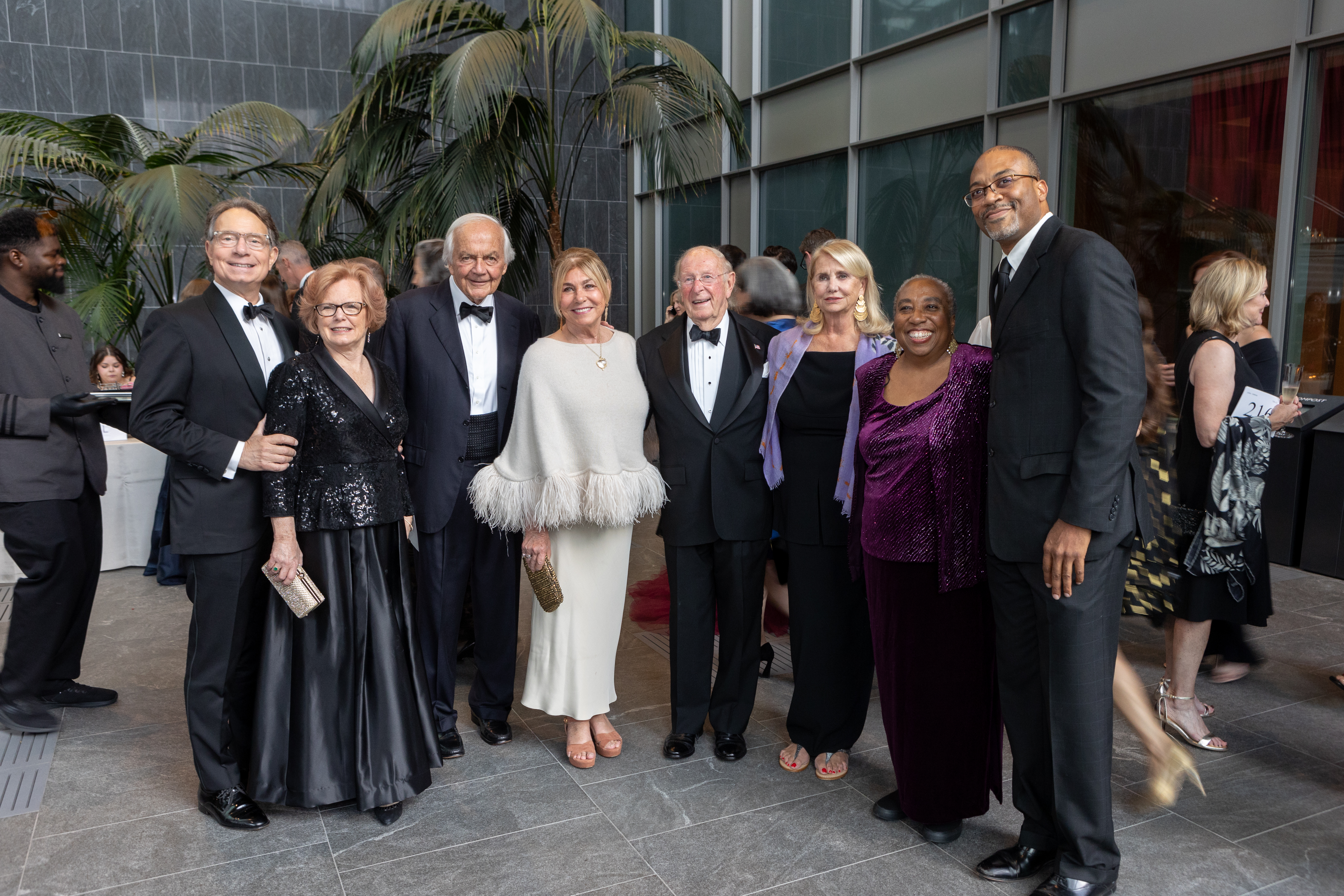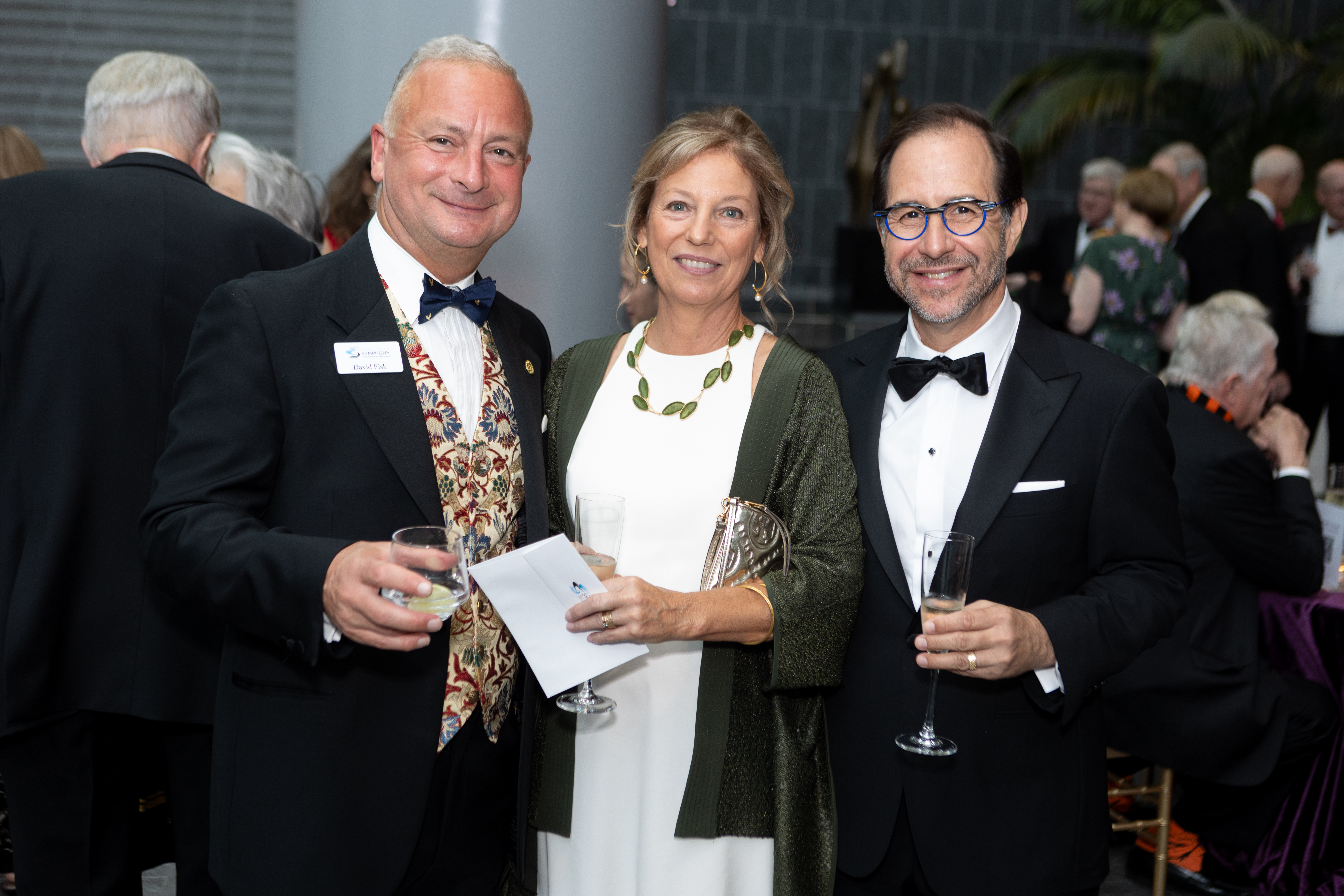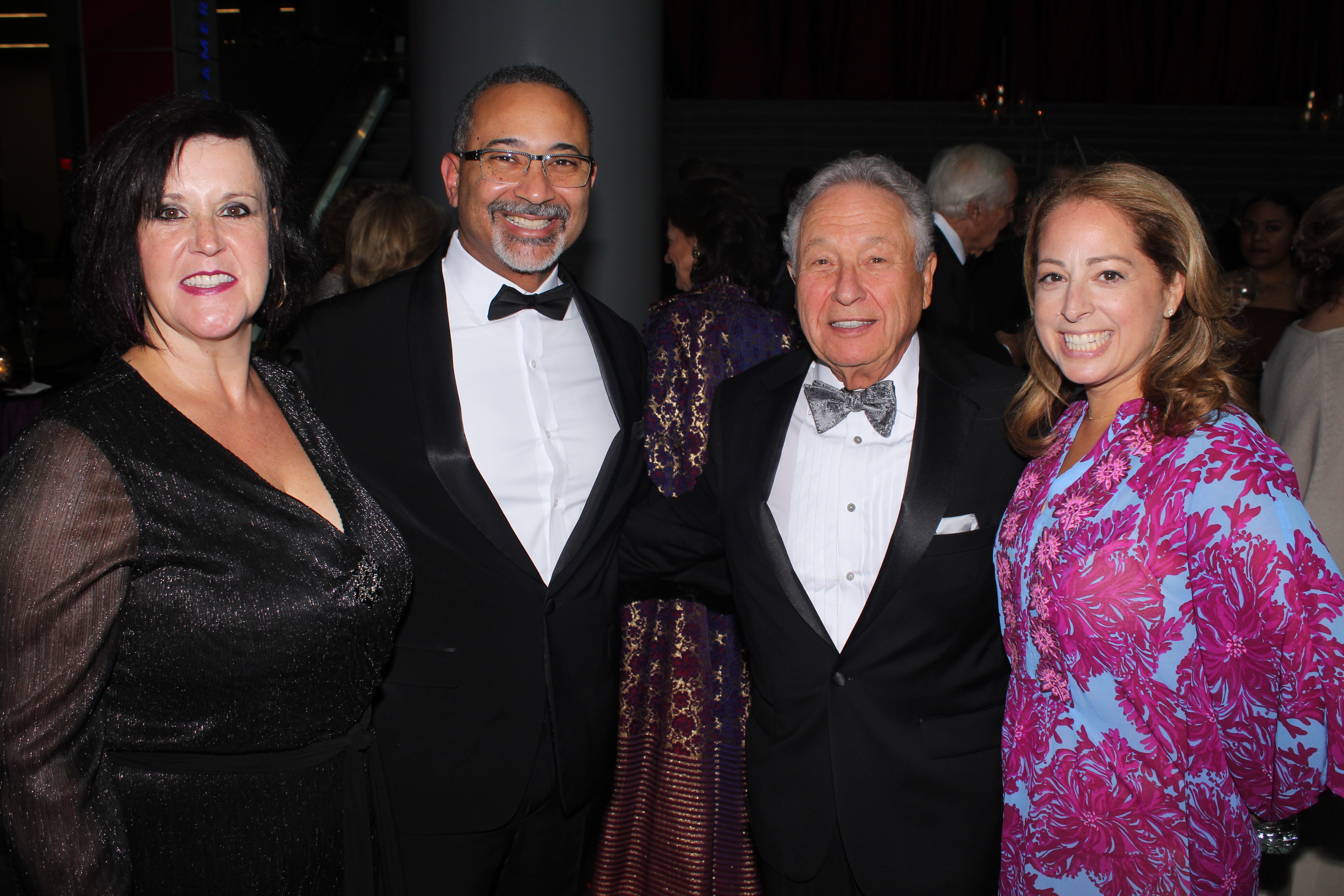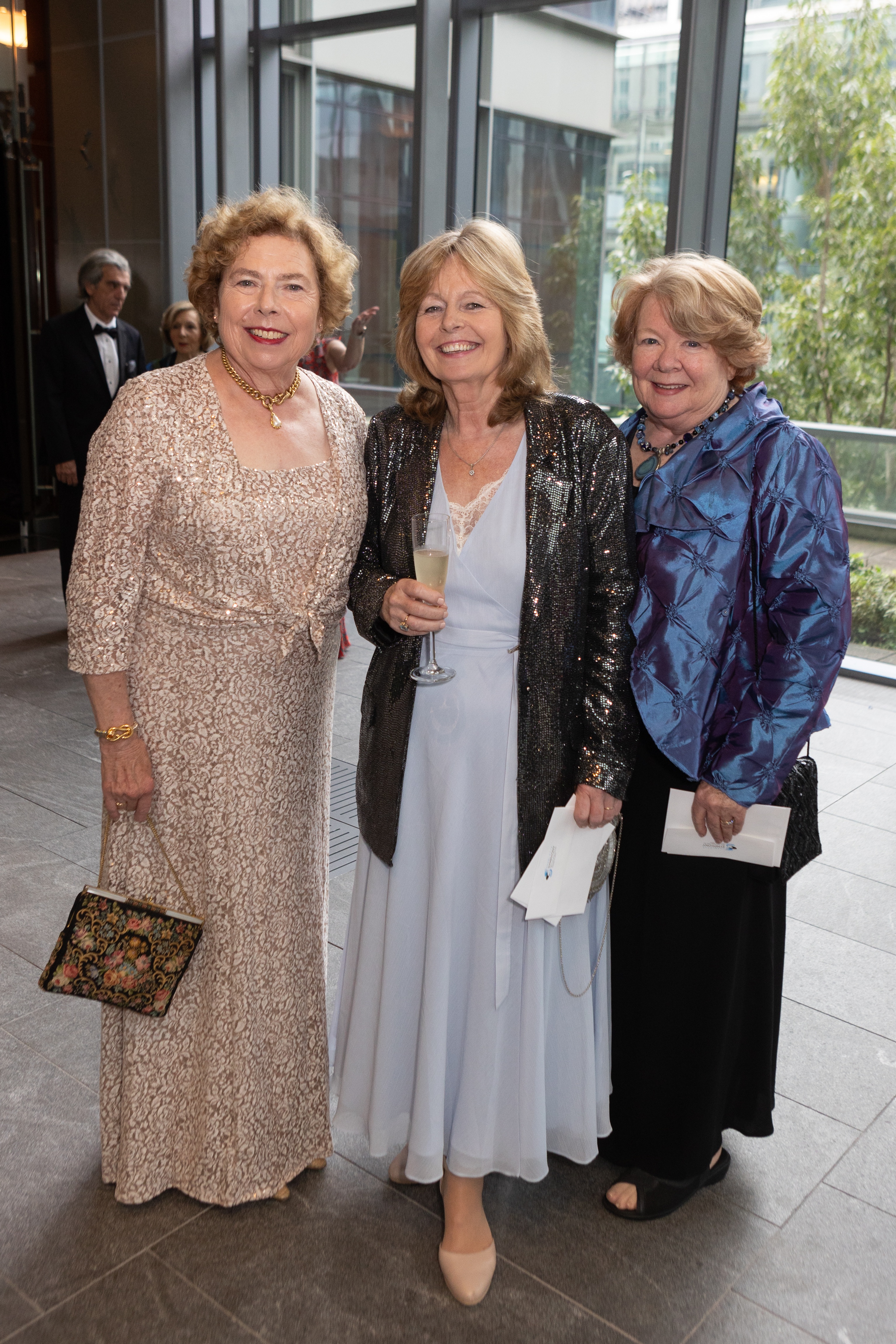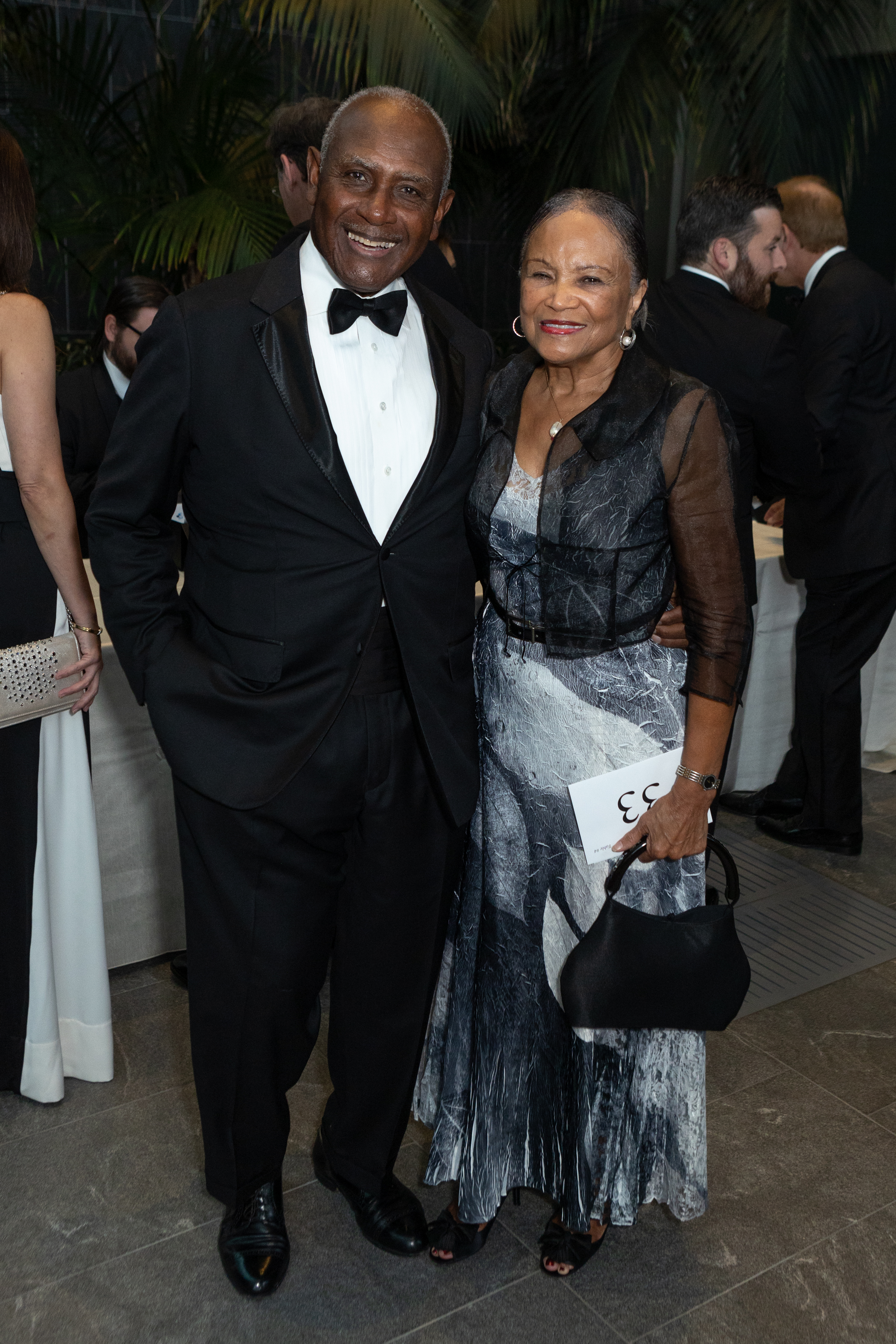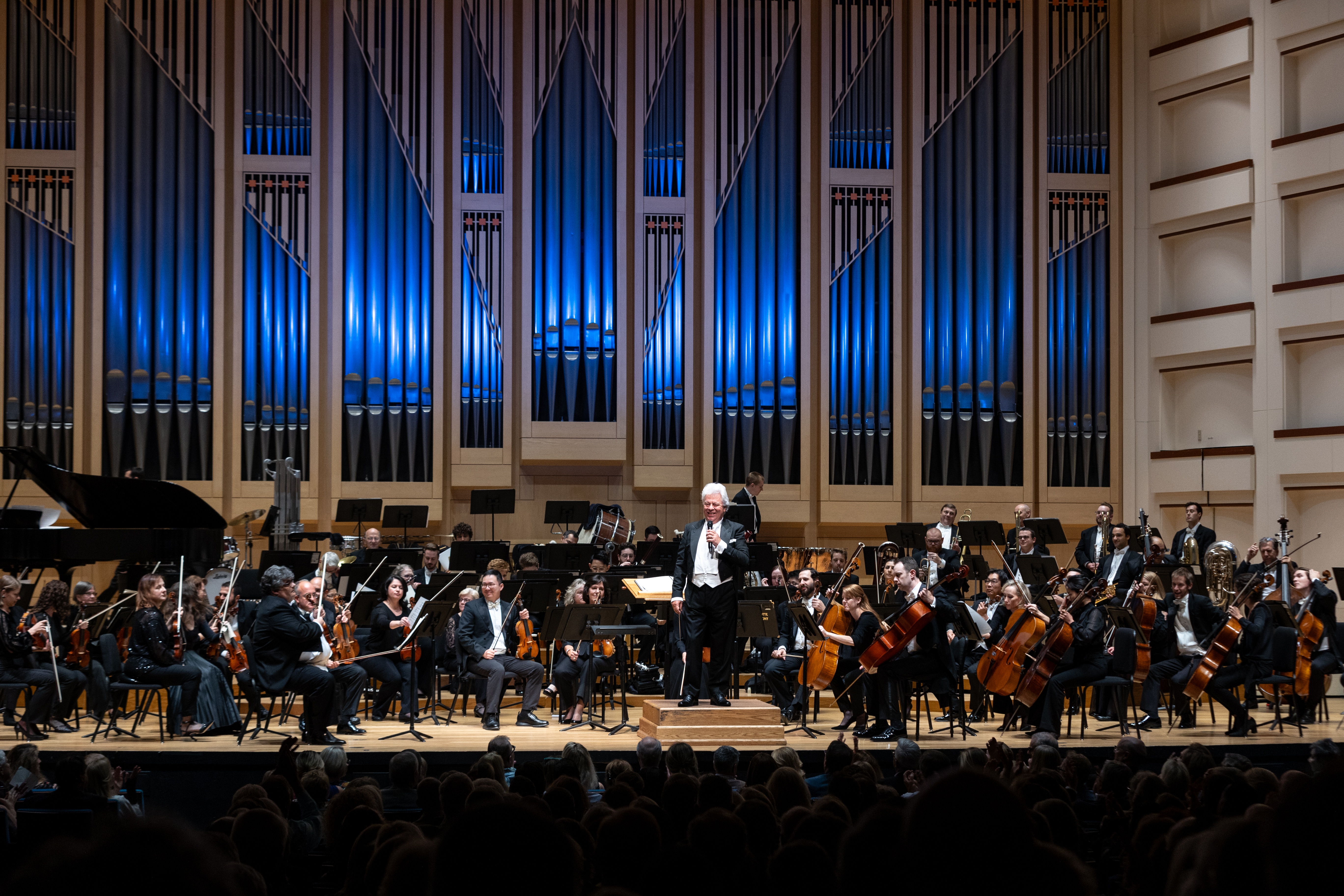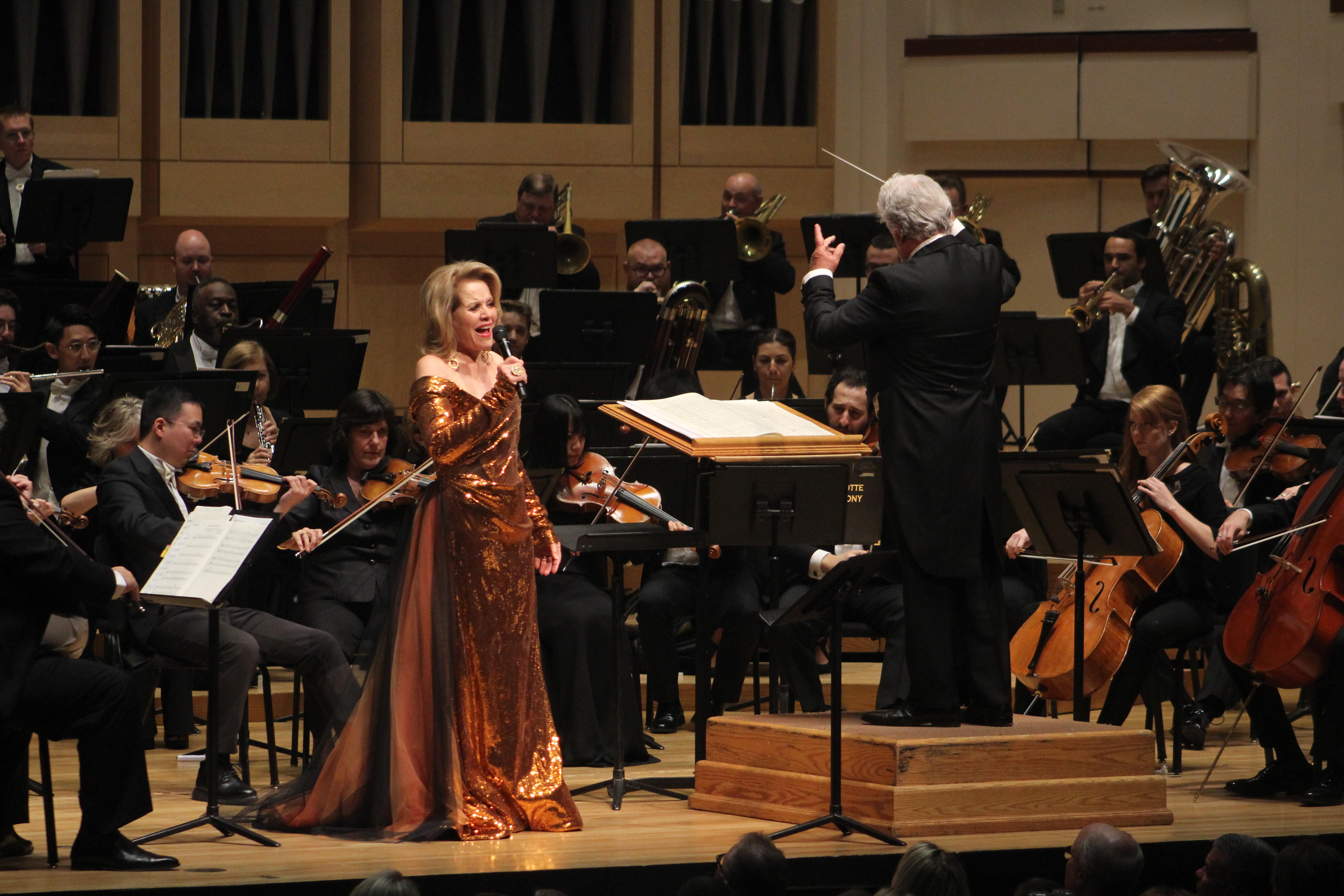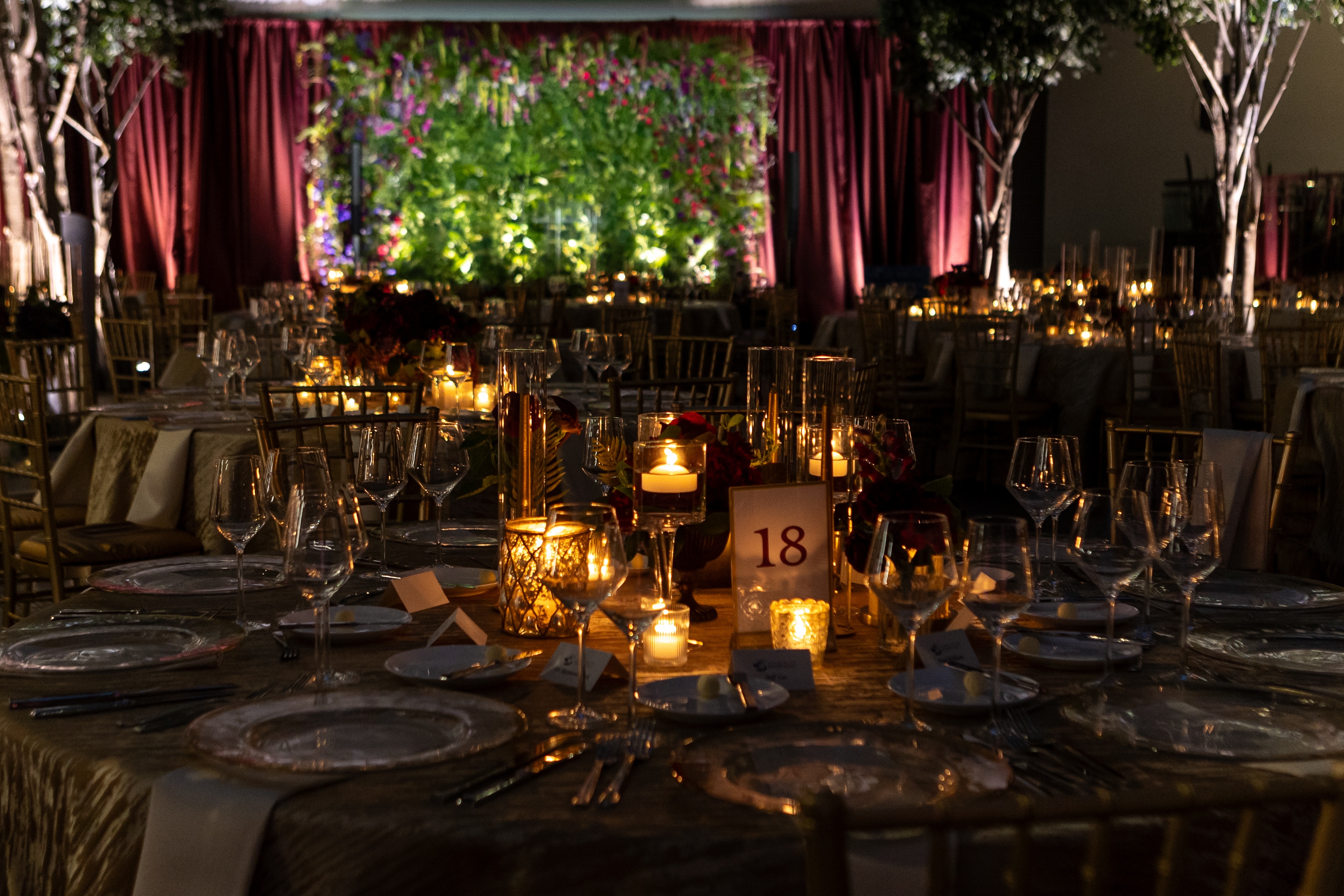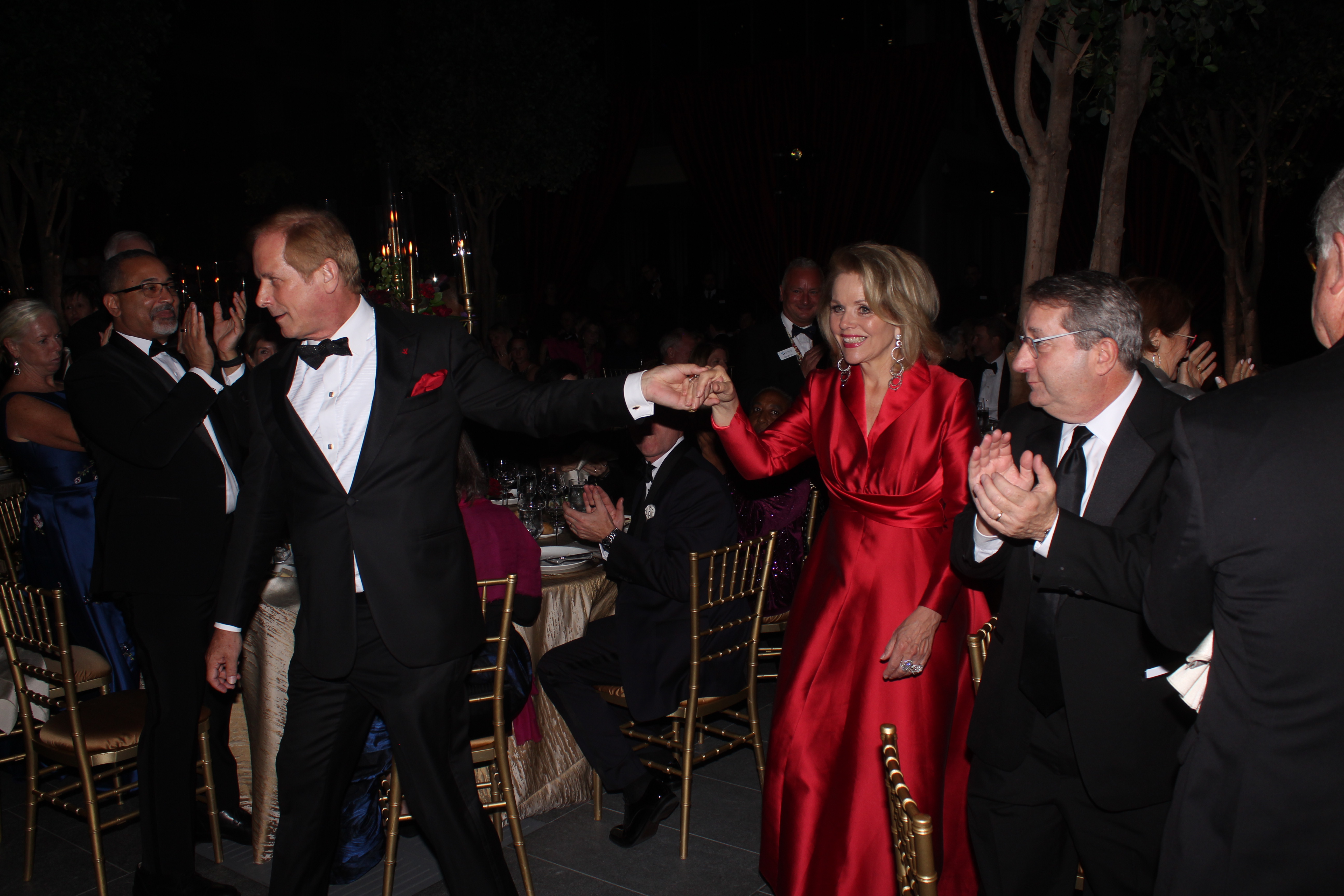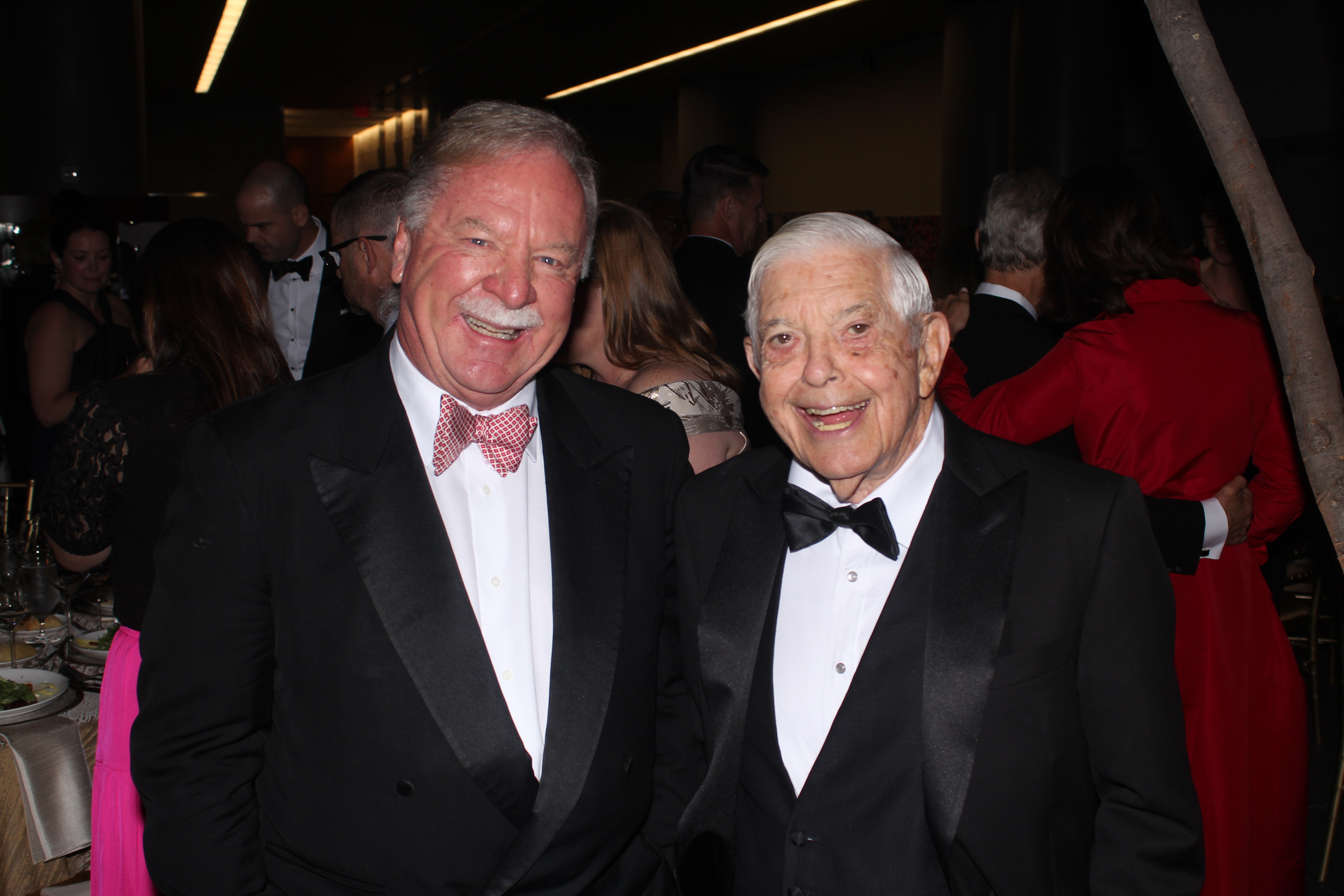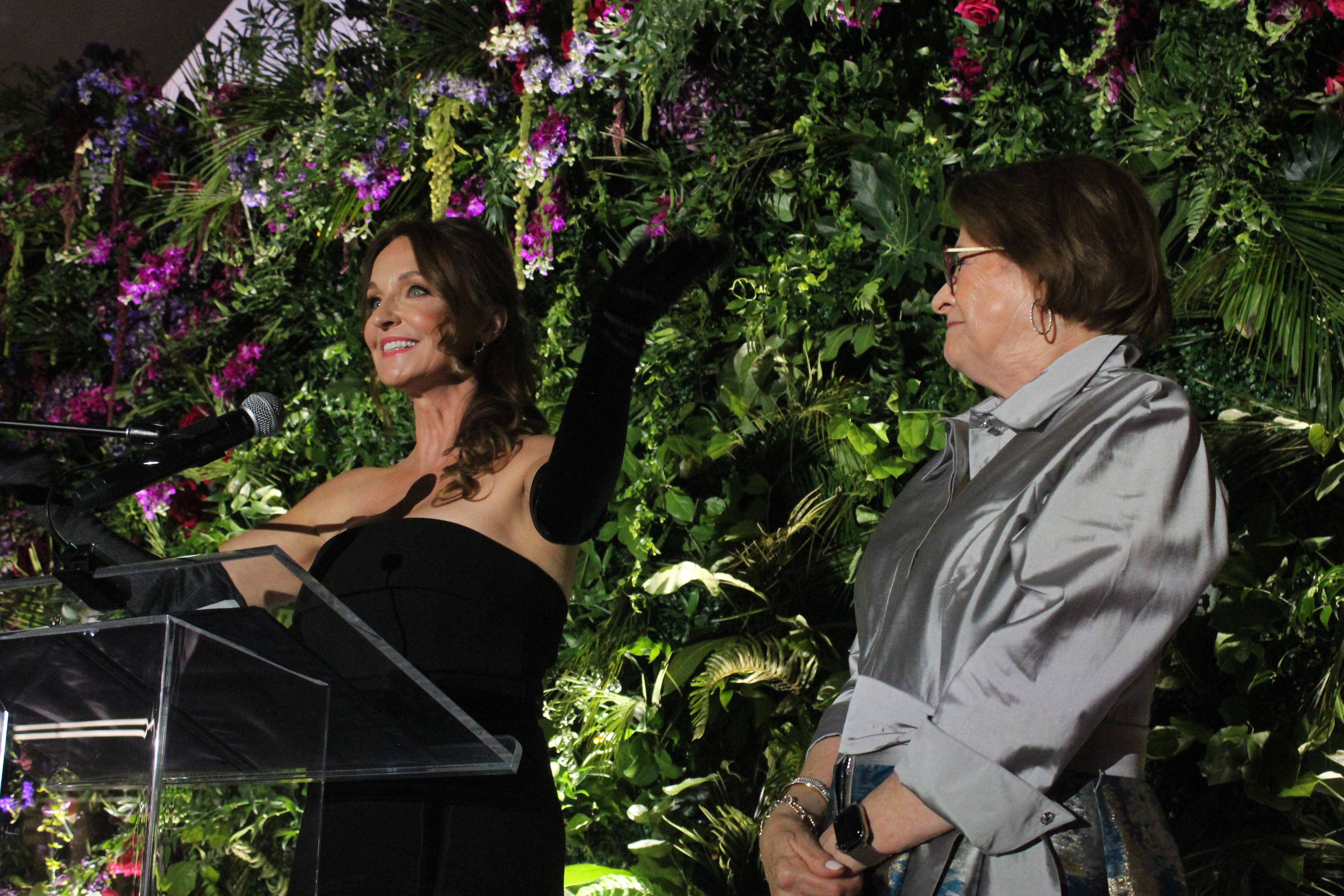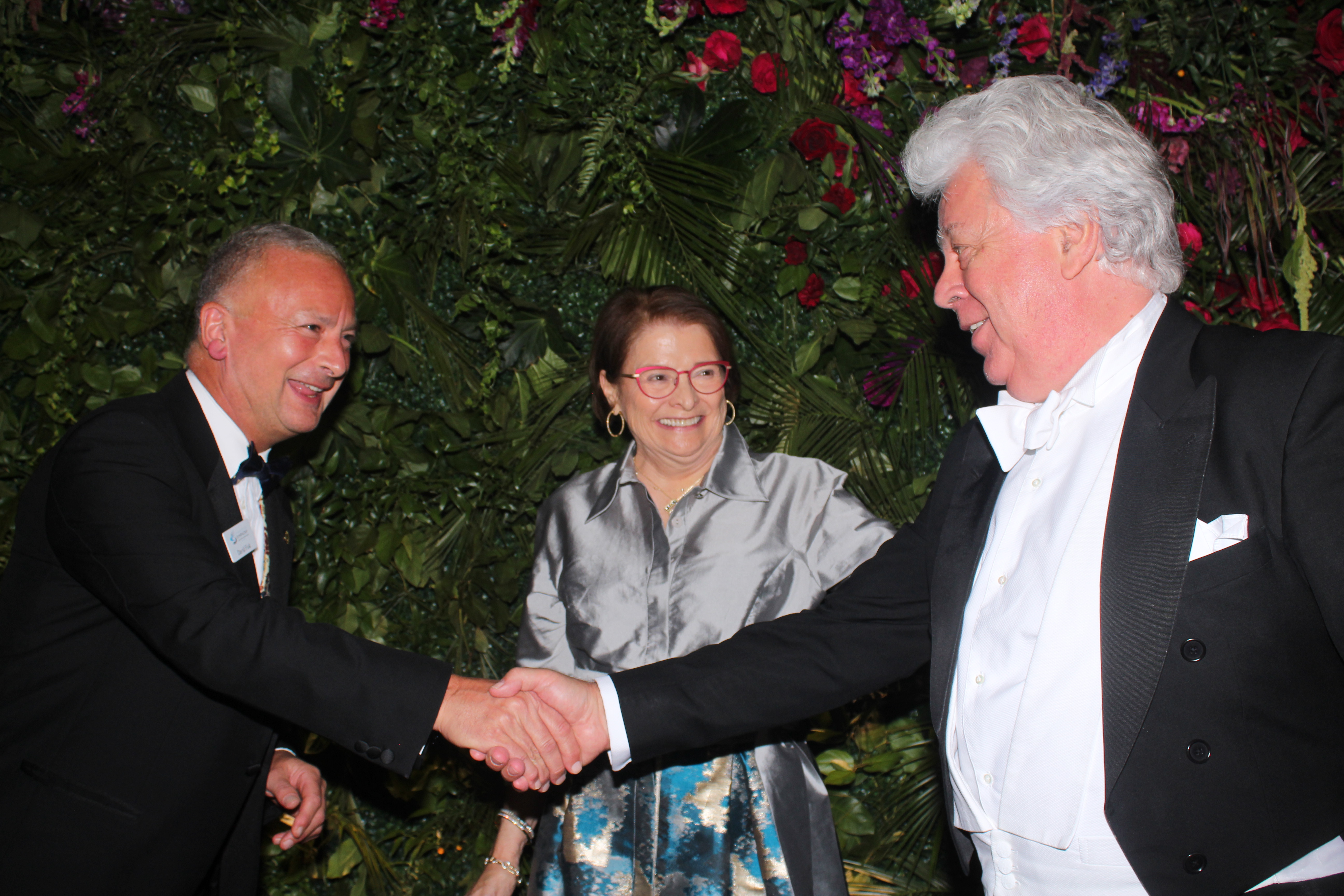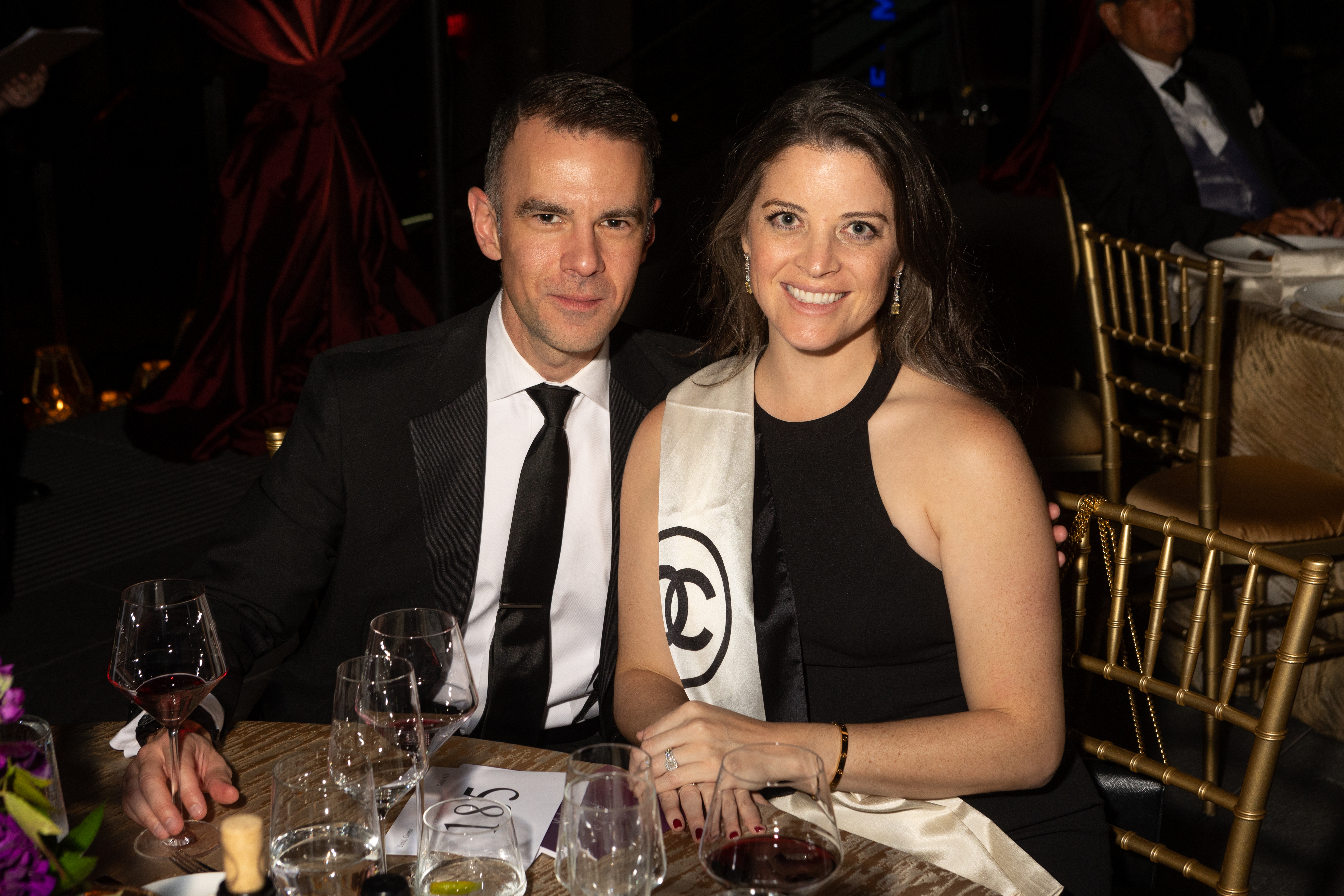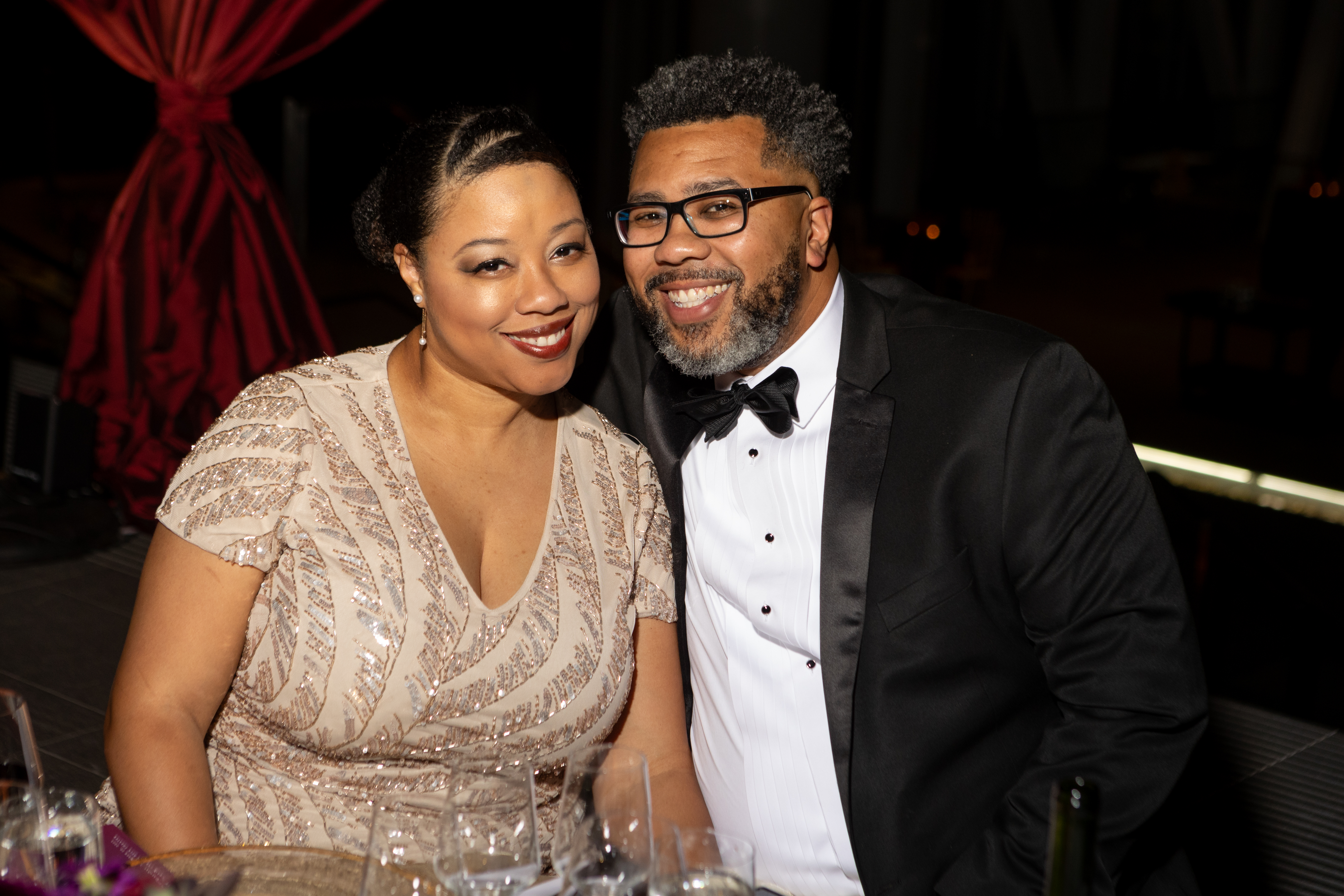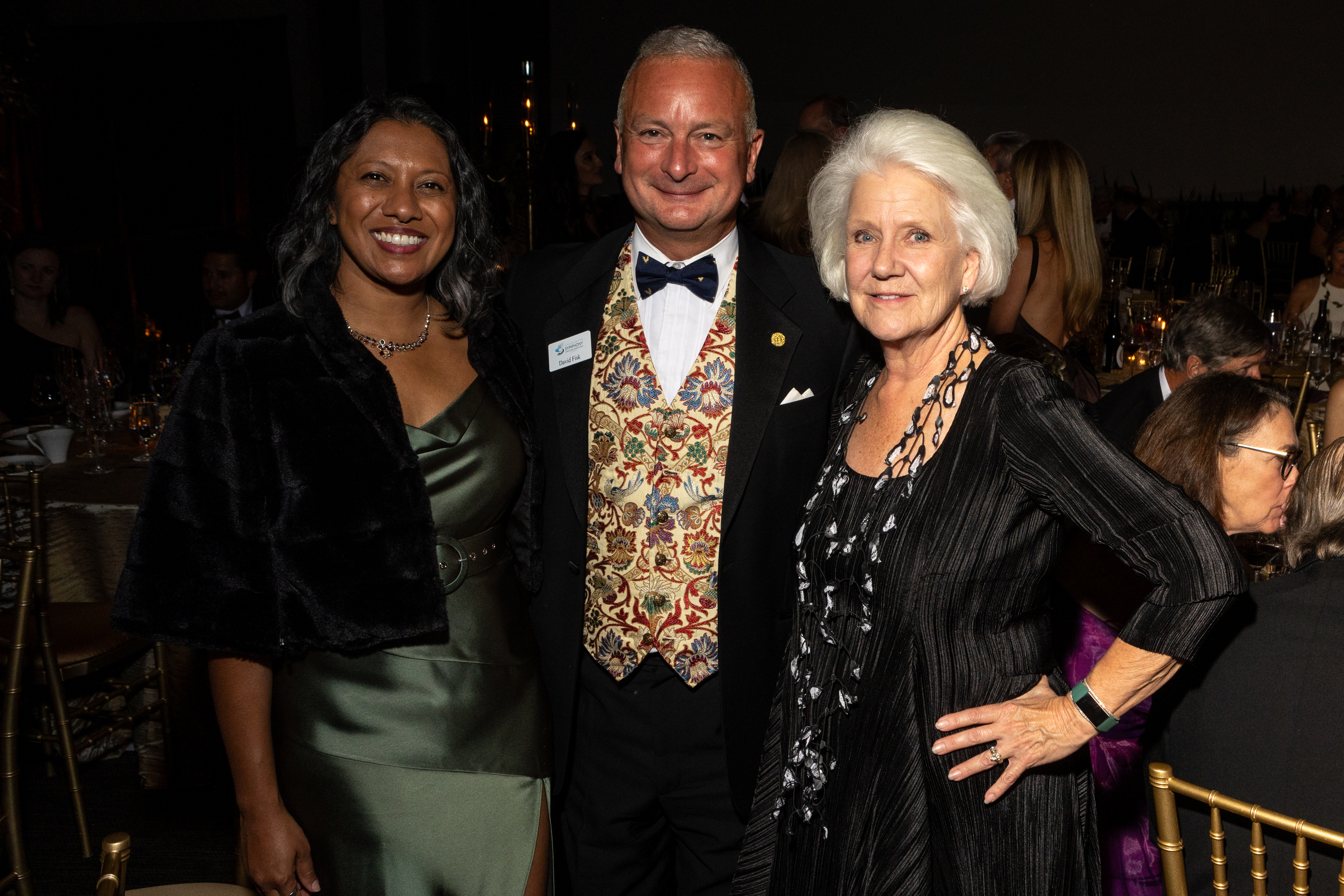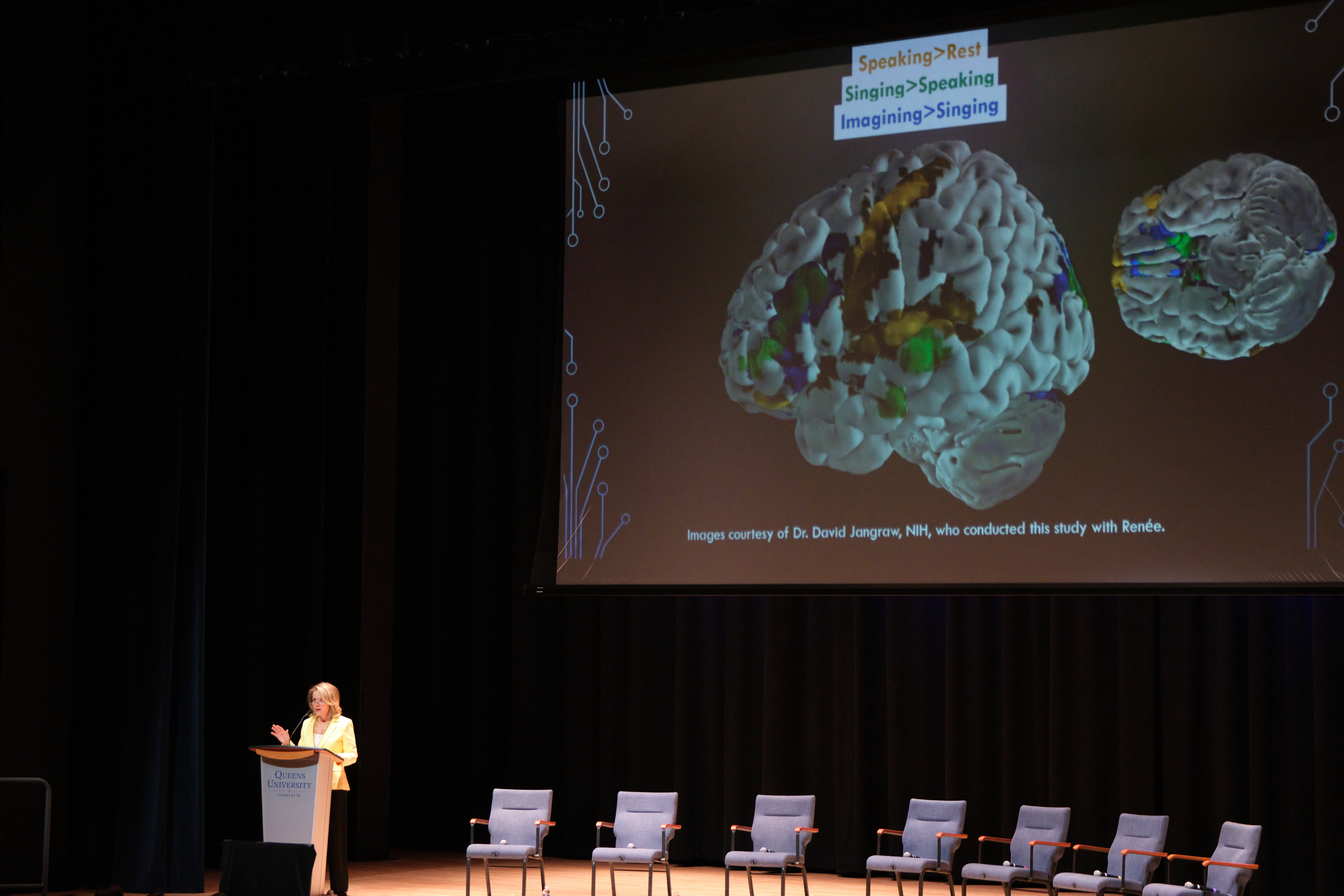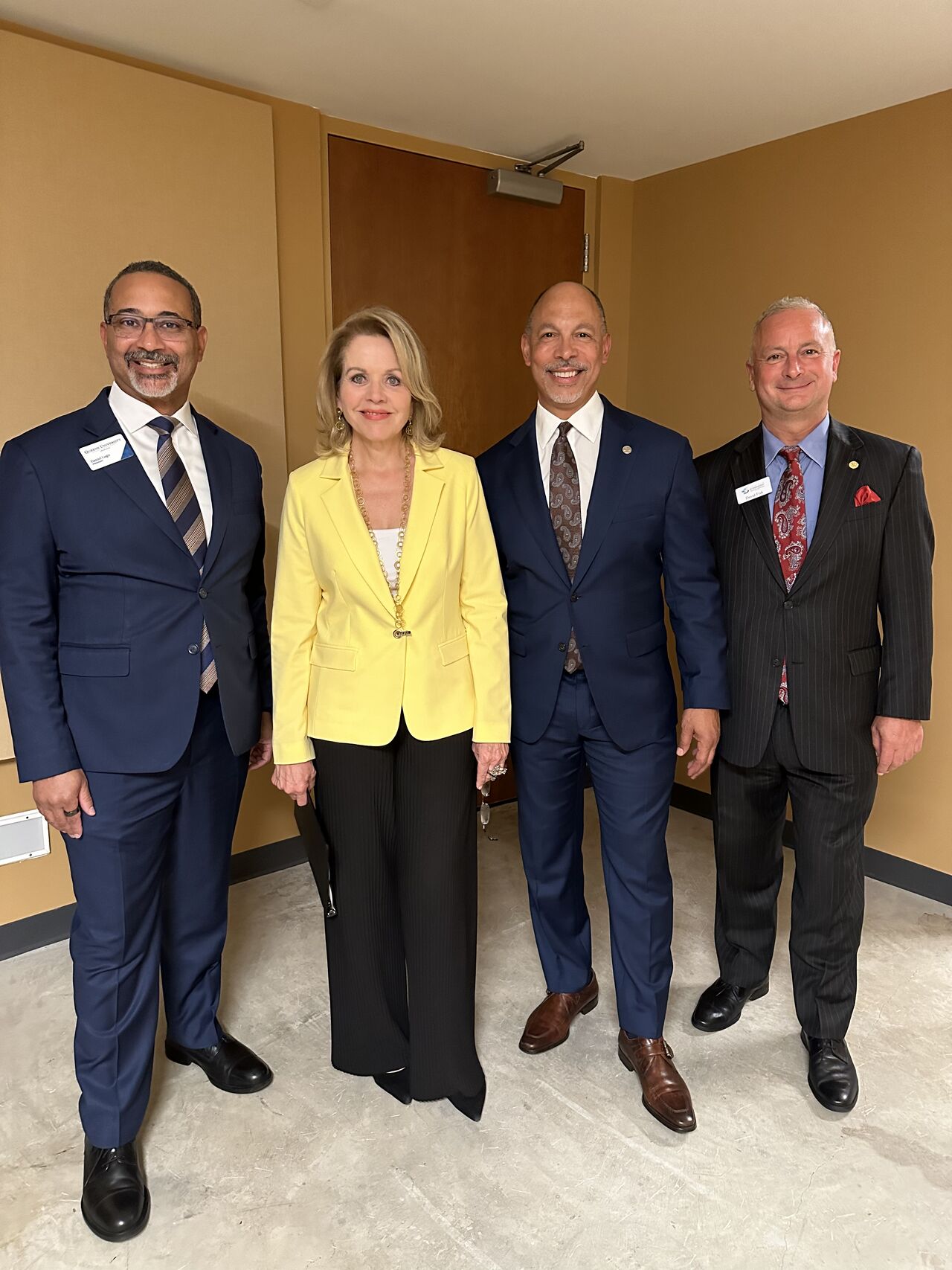Sound of Charlotte Blog
More Famous Than Mozart: Joseph Bologne, Chevalier de Saint-Georges
February 5, 2024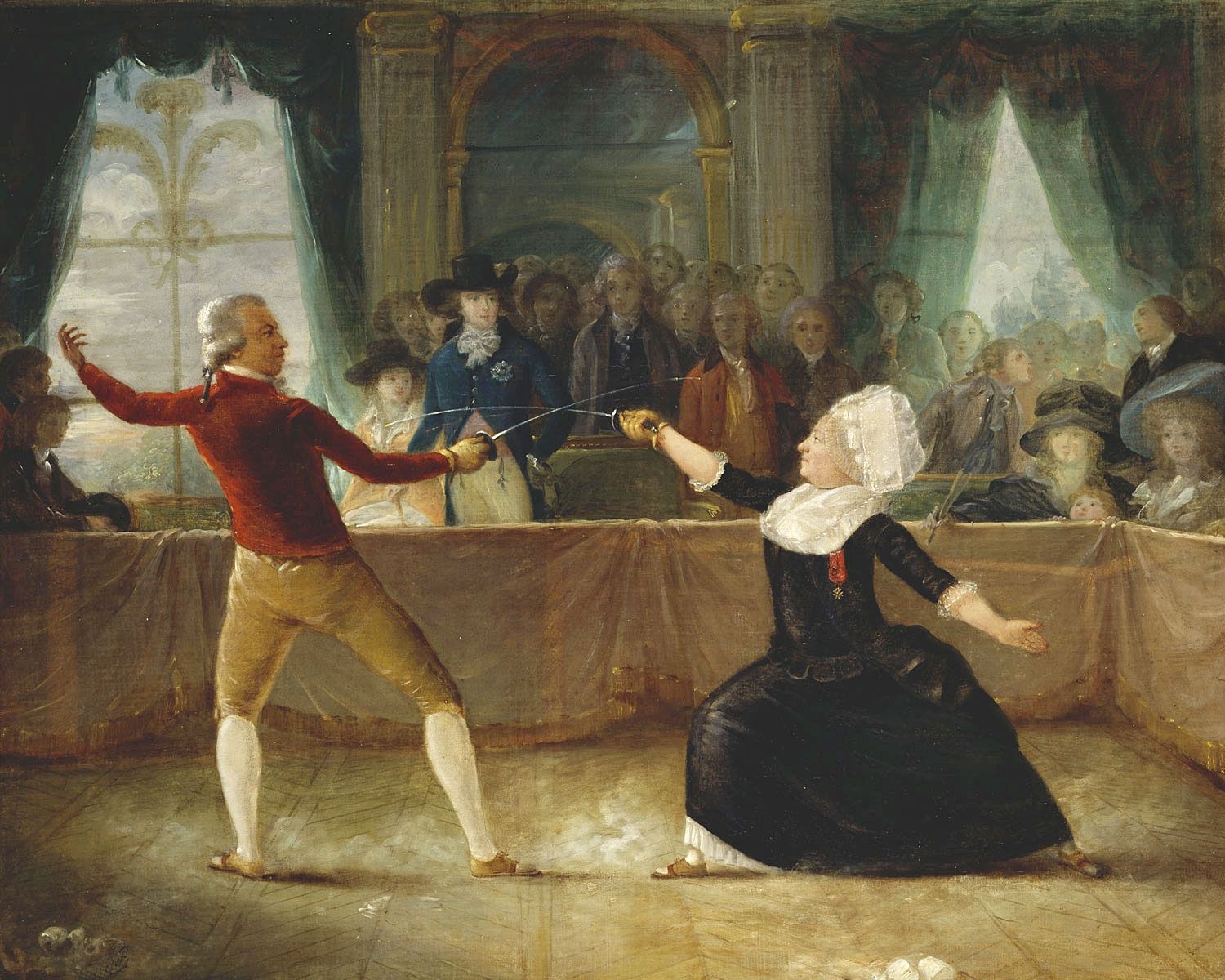
In 18th century France, Joseph Bologne was an unrivaled superstar -- in modern times, he would easily be a household name. Not only a composer, conductor, and a virtuosic violinist who outshone Mozart in Paris, the Chevalier de Saint-Georges earned renown as the greatest swordsman in Europe, a Colonel in the French Revolution, and leader in the abolitionist movement. Until recently, however, Bologne's incredible talent and achievements had faded to near-obscurity.
Bologne was born to an enslaved African-Guadeloupean mother and a French plantation owner father in 1745 on the island of Guadeloupe. The family moved to France when Joseph was a young child, and his father placed him in an elite private school in Paris. Notwithstanding the racist "Code Noir" that even prevented him from taking his father's suffix, "de Saint-Georges," Bologne studied alongside young aristocracy. Prominent teachers included the renowned master of arms, La Boëssière. The young swordsman excelled in fencing; at 17, receiving knighthood from Louis XV -- becoming Chevalier de Saint-Georges.
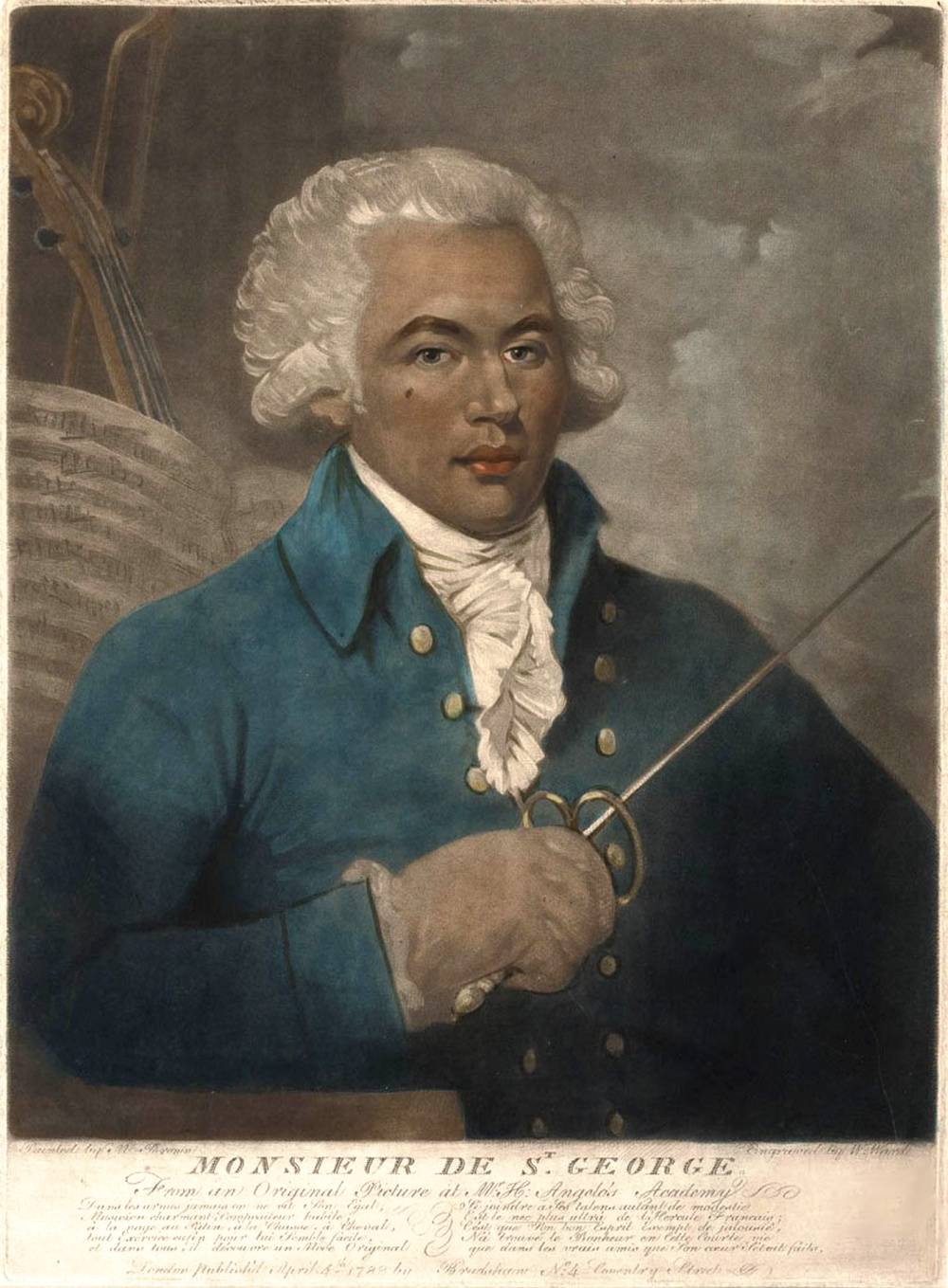
Though the Chevalier distinguished himself in many pursuits, his musical career rose to extraordinary heights, including the Palace of Versailles. Little is known about his musical training, though he likely learned from composer François-Joseph Gossec. Bologne publicly debuted two violin concertos (Op. 2) as the soloist with Gossec's Concert des Amateurs in 1772, later succeeding Gossec as the orchestra's musical director. He later founded the Concert de la Loge Olympique, which survived through the beginning of the Revolution, and after which, Bologne briefly led the Cercle de l'Harmonie.
His compositions spanned from violin concertos to operas, instrumental forms written between 1771 and 1779 comprising his oeuvre. Bologne contributed to the emerging Classical period with inventive styles. Bologne's symphonie concertantes, a blend of the Baroque concerto grosso and the Classical concerto, were some of the first in France to establish the genre. He wrote three sets of six works for string quartet, Six Quatours concertans. Bologne's three sonatas for keyboard and violin broke from the still-popular basso continuo Baroque style, and he looked ahead to the forming Classical period with textures and harmonies.
Bologne's intricate violin pieces gained the admiration of Mozart, who quite likely copied the Chevalier's work. A passage from Mozart's Symphonie Concertante in E-flat (K. 364) closely follows Bologne's violin concerto (Op. 7, No. 1), written the previous year. At the height of his illustrious career, Bologne often performed for Queen Marie Antoinette, and across the Atlantic, President John Adams acknowledged him as "the most accomplished man in Europe in riding, shooting, fencing, dancing and music."
But even exceptional talent and a high society upbringing did not protect the Chevalier from experiencing racism throughout his life. When he was considered a favorite to direct the Académie Royal de Musique, the foremost musical position in France, three of the Opera's prima donnas refused to be led by a person of mixed race. Their petition crushed Bologne's candidacy.
Read more
Photos: Charlotte Symphony Annual Gala and Concert
October 3, 2023< >
On Wednesday, September 20, the Charlotte Symphony held its Annual Gala, kicking off the 2023-24 season with a celebratory evening. The Symphony welcomed superstar soprano Renée Fleming to the stage, alongside Conductor Laureate Christopher Warren-Green, to perform beloved works like Strauss's Four Last Songs, "Climb Ev'ry Mountain," and a touching rendition of "Hallelujah."
The concert was the centerpiece of the Gala evening which honored Christopher Warren-Green for his remarkable contributions to the Charlotte Symphony during his twelve years as Music Director. Guests of the Gala enjoyed a pre-concert cocktail reception and an elegant post-concert dinner at Urban Garden.
The following day, Renée Fleming hosted "Music and Mind," a conversation on the intersection of music, neuroscience, and healthcare presented in partnership with Atrium Health and Queens University of Charlotte. Check out the photos in the slideshow above. Read more
Five Must-See Concerts of the 2023-24 Season
September 6, 2023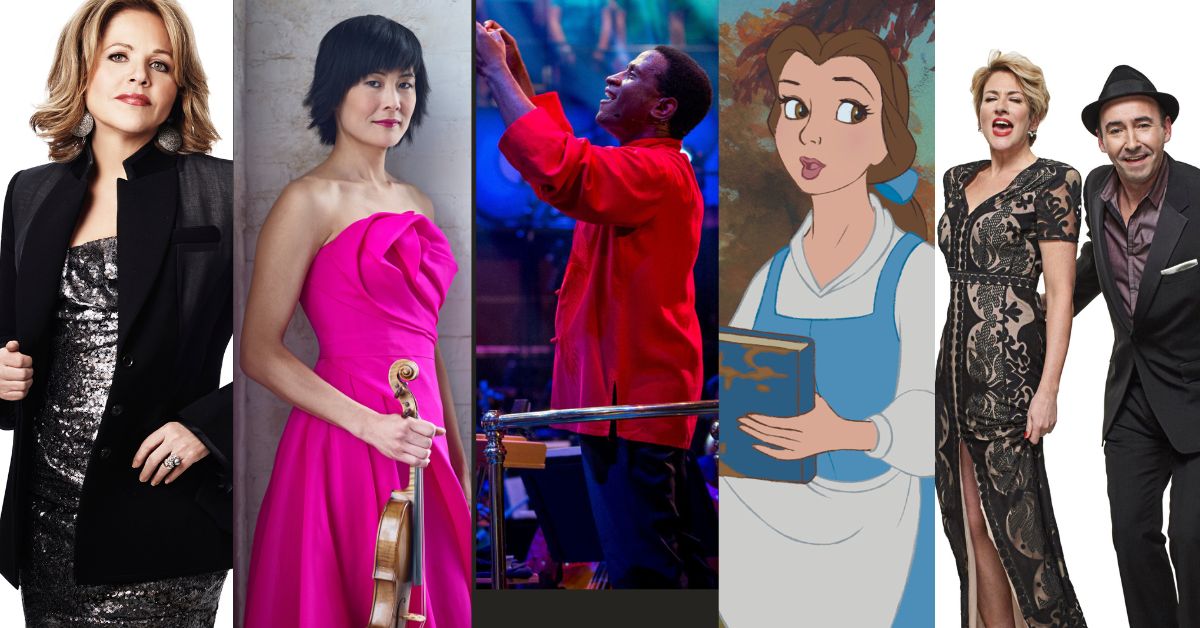
Anticipation is building as we get closer to the start of our 2023-24 season! With such an incredible lineup of concerts, choosing where to begin might seem overwhelming. But don't worry, we're here to help! Here are five concerts that deserve a special spot on your calendar:
An Evening with Renée Fleming
September 20 | Belk TheaterLovingly referred to as "the people's diva," Renée Fleming is one of the most beloved and celebrated singers of our time -- and she's returning to Charlotte for the first time in nearly 20 years! In this one-night-only event, led by Conductor Laureate Christopher Warren-Green, Ms. Fleming performs favorites from La Bohème and The Sound of Music alongside Richard Strauss's Four Last Songs, which she hails as "the greatest piece written for soprano and orchestra."
The Hot Sardines
November 10-11 | Knight TheaterThis group puts the "hot" in hot jazz! Think Harlem Renaissance cabarets and New Orleans speakeasies with a touch of cigar smoke and Parisian "je ne sais quoi." The Hot Sardines offer a mix of standards and modern-day hits, brought to life with brassy horn arrangements, rollicking piano, and incredible vocals by Miz Elizabeth.
Verdi's Requiem
November 17-18 | Belk TheaterThe raw power of Verdi's Requiem -- with more than 70 musicians and a choir of over 100 -- will blow you right back in your seat when Kwamé Ryan joins the Charlotte Symphony and Charlotte Master Chorale to conduct this musical tour de force. Verdi's Requiem is full of contrasts, from the sublime lyricism of the opening movement to the sheer terror of its infamous "Dies irae."
Beauty and the Beast in Concert
January 12-13 | Oven AuditoriumRelive the enchantment of Belle and the Beast's timeless journey and share the magic of this Disney classic with your little ones! Alan Menken's Academy Award-winning score, including "Tale as Old as Time" and "Be Our Guest," will come to life when performed by the Charlotte Symphony in sync with the full-length film. Get there a few minutes early to grab some popcorn and enjoy the show!
Jennifer Koh Plays Mazzoli
January 19-20, 2024 | Knight TheaterThis all-American program takes us from the Blue Ridge Mountains of North Carolina to the open ranges of the Old American West with Jennifer Higdon's Cold Mountain Suite and Aaron Copland's Billy the Kid Suite. Violinist Jennifer Koh, known for her intense and commanding performances, brings her dazzling virtuosity to Missy Mazzoli's Violin Concerto, Procession, which will lead you on a music journey through five healing spells based on the healing rituals of the Middle Ages.
Kenney Potter on Mendelssohn’s Lobgesang
March 1, 2023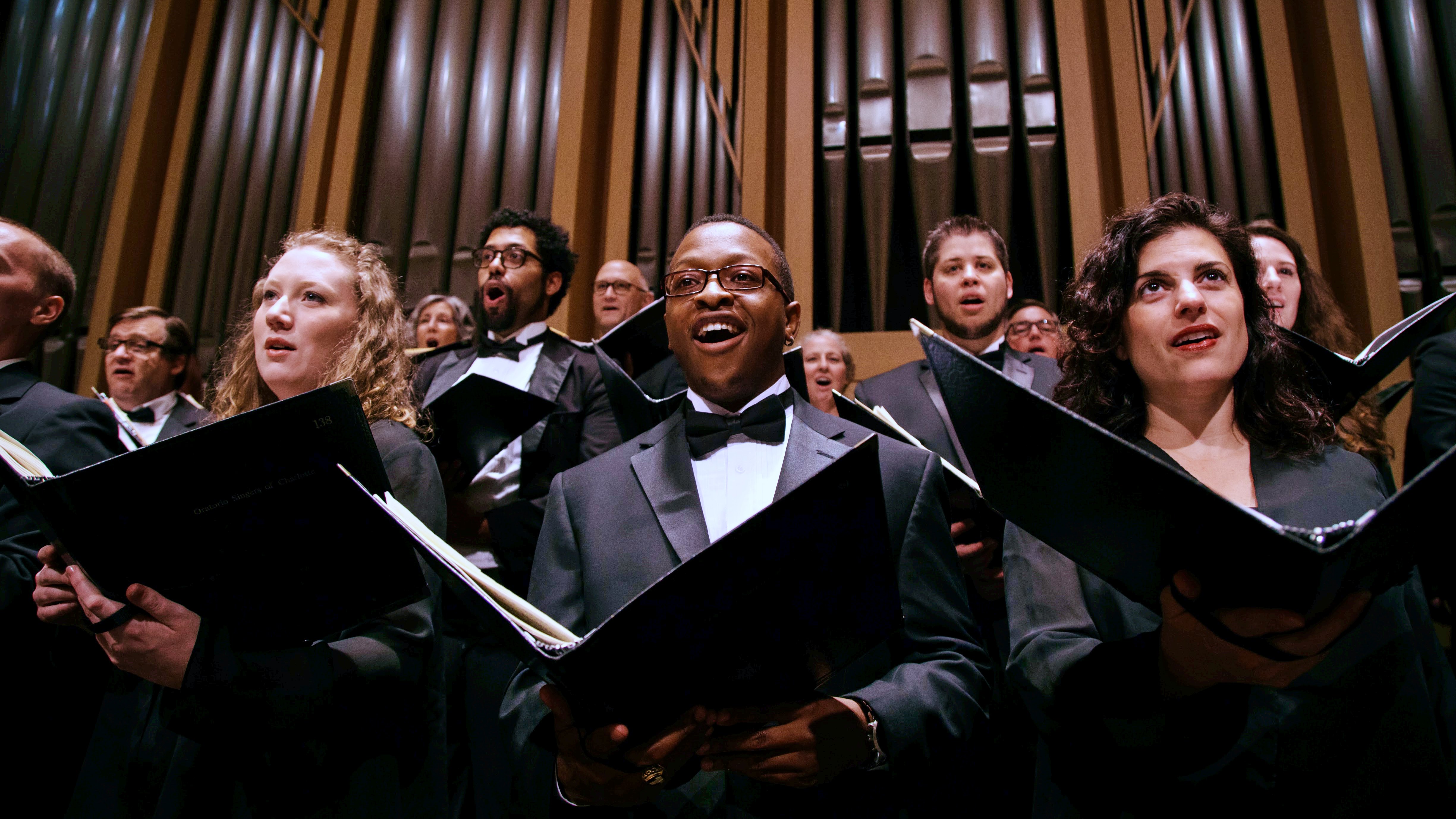
Jessica Cottis returns to the Charlotte Symphony on March 24 & 25 to lead the Orchestra and Charlotte Master Chorale in Mendelssohn's Lobgesang (Hymn of Praise), A Symphony-Cantata. The work premiered in 1840 as the culmination of a festival in Leipzig celebrating the 400th anniversary of Gutenberg's printing press. Robert Schumann attended the premiere and reported on the similarities between Lobgesang and Beethoven's Ninth, "save for the distinguishing difference that the three orchestral movements proceed without any pause between them -- an innovation in the symphonic form. No better form could have been selected for this special purpose."
Here, Charlotte Master Chorale Artistic Director Kenney Potter shares some insight on this incredible work and how the Chorale is preparing.
| For those who are unfamiliar with this work, what should they expect? Triumphant music that expresses the text of Psalm 150 beautifully. The listener will hear first the trombones state the main theme of the work, which is sung with the text of Psalm 150 ("Let everything that has breath, praise the Lord.") What I find interesting is that the trombone is the horn of choice for many German speakers vs. trumpets. A good example is in the Mozart Requiem, where the Tuba Mirum "final days" theme is played by the trombone (this is due to Luther's translation that the trombone signaled the last days). I think it was a purposeful decision to utilize the trombones. |
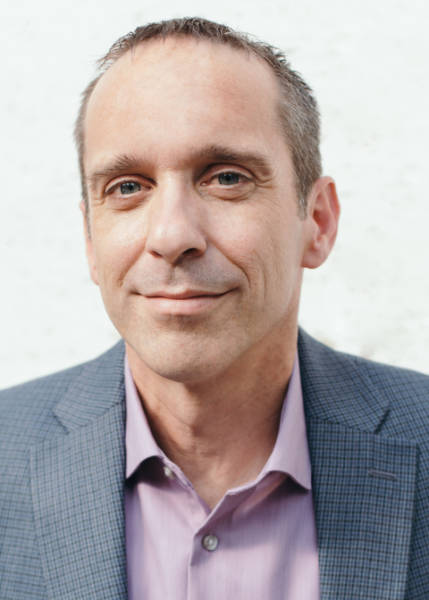 |
What do you make of the comparisons between Mendelssohn's Lobgesang to Beethoven's Symphony No. 9?
There are obvious similarities, since the listener will hear three orchestra movements (labeled in traditional format) followed by a choral movement. The difference is that Mendelssohn himself labeled this work as a "symphony-cantata on words of the Holy Bible for soloists, choir, and orchestra."
What does it take to prepare the Charlotte Master Chorale for a work of this scope?
Compared to Beethoven 9, there is more material to prepare. Also, Mendelssohn was more understanding of the voices and their ranges and capabilities. Beethoven is extremely challenging for vocalists due to the extreme ranges, particularly for the sopranos.
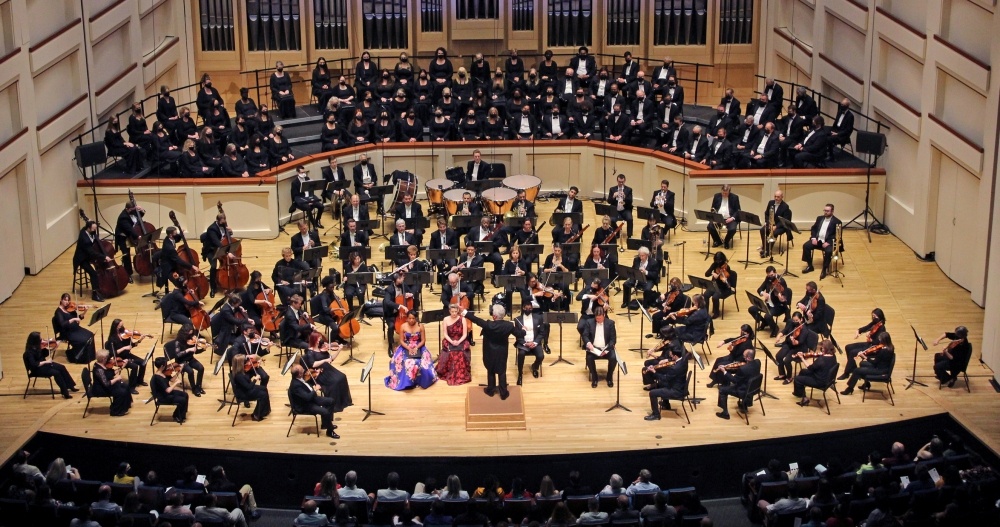
What are your favorite moments in the work?
The opening chorus, the utilization and treatment of the "Now Thank We All Our God" tune in the eighth movement, and the final fugue.
What are you looking forward to most about this performance?
It is always a joy to collaborate with the Charlotte Symphony, especially on works that our Charlotte audience needs to hear!
The Charlotte Symphony and Charlotte Master Chorale perform Mendelssohn Hymn of Praise on March 24 & 25 at Belk Theater -- Get tickets today!
Read more
William Grant Still: The Dean of African American Composers
February 1, 2023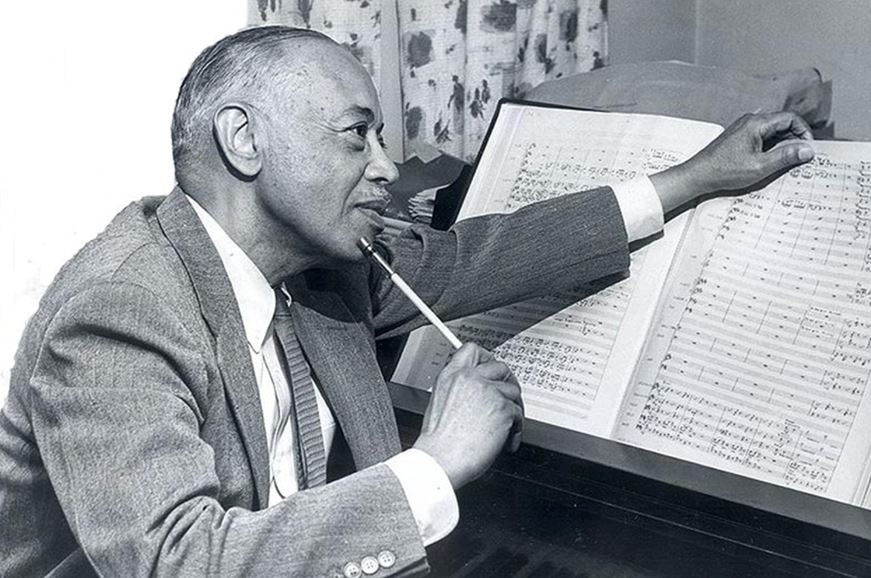
William Grant Still (1895-1978), often called The Dean of African American Composers, was an American composer, arranger, conductor, and pioneer of early 20th-century classical music. He was born in Mississippi and grew up in Little Rock Arkansas where he learned to play the violin and piano. Despite facing significant racial barriers and prejudice, Still went on to become one of the most influential figures in classical music, paving the way for future generations of African American musicians and inspiring countless composers with his unique style.
Still was the first African American conductor to lead a major American orchestra, and the first to have an opera produced by the New York City Opera. Throughout his career, Still composed more than 150 works, including five operas, eight ballets, six symphonies, and numerous other works for solo instruments, choral ensembles, and small and large orchestral groups.
Still's music was born of the Harlem Renaissance and his sound is characterized by its fusion of classical, blues, and spiritual elements, reflecting his experiences as a black man in early 20th-century America. He drew inspiration from a wide range of musical styles, including European classical music, African American spirituals, and jazz, creating a unique musical voice that was ahead of its time. His compositions feature intricate rhythms, lyrical melodies, and rich harmonies, and he often used his music to address political and social issues of the day.
Today, William Grant Still continues to inspire musicians and audiences alike. His music has been performed by major symphony orchestras, opera companies, and ballet companies around the world, and his legacy continues to influence contemporary classical music.
Explore five of the best pieces of music by William Grant Still on Classic fm.
Read more
Joshua Weilerstein on Brahms’s Fourth Symphony
January 19, 2023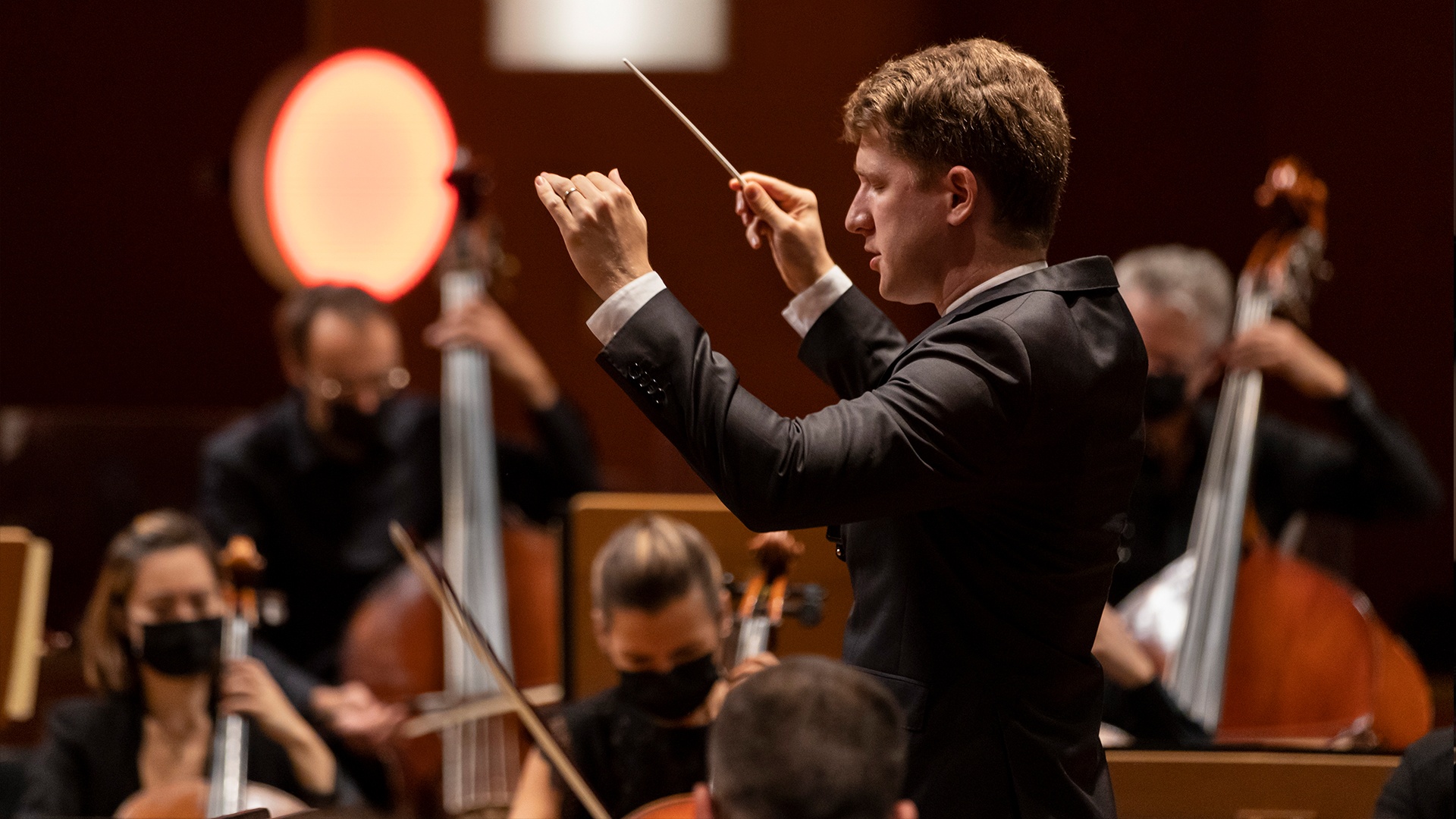
Acclaimed conductor Joshua Weilerstein makes his debut with the Charlotte Symphony on February 10 & 11, leading the orchestra in Brahms's Symphony No. 4. This remarkable work showcases the composer's mastery of form, counterpoint, and emotional expression; and is a must-hear for classical music lovers and newcomers alike. The program will also include Ethel Smyth's On the Cliffs of Cornwall and Edvard Grieg's Piano Concerto in A minor.
Here, Joshua Weilerstein shares some insight into this incredible program.
What stands out to you most about this concert?
Brahms's Fourth Symphony is one of the most intensely passionate pieces that Brahms ever wrote. It represented 'the end' for him in many ways. It is his last symphony, last major orchestral work, and it seems to almost express an apocalyptic sense as well, as Brahms saw the deepening fissures and cracks that would result in the breakdown of European society in the years after he wrote the symphony. At the same time, it is a piece full of all the love and warmth that makes Brahms's music so irresistible to us.
To put it briefly, it is a symphony that encompasses the entire gamut of human emotion, and its intensity makes it unforgettable to hear live! It's also a great pleasure to be doing the music of Ethel Smyth and Edvard Grieg as well. The three composers once shared a meal together, which makes us feel like we've gone back in time to hear this music.
What are you looking forward to about working with the Charlotte Symphony?
I've never been to Charlotte before, so I'm very excited to be meeting the orchestra for the first time and to get to know the city. It's always a thrill to make music with a brand new group of people.
Learn more about this program from Joshua Weilerstein at the pre-concert talk, held before each concert on the Mezzanine Level of the lobby at 6:30 pm. Get tickets today!
Read more
A Composer to Know: Erich Wolfgang Korngold
January 3, 2023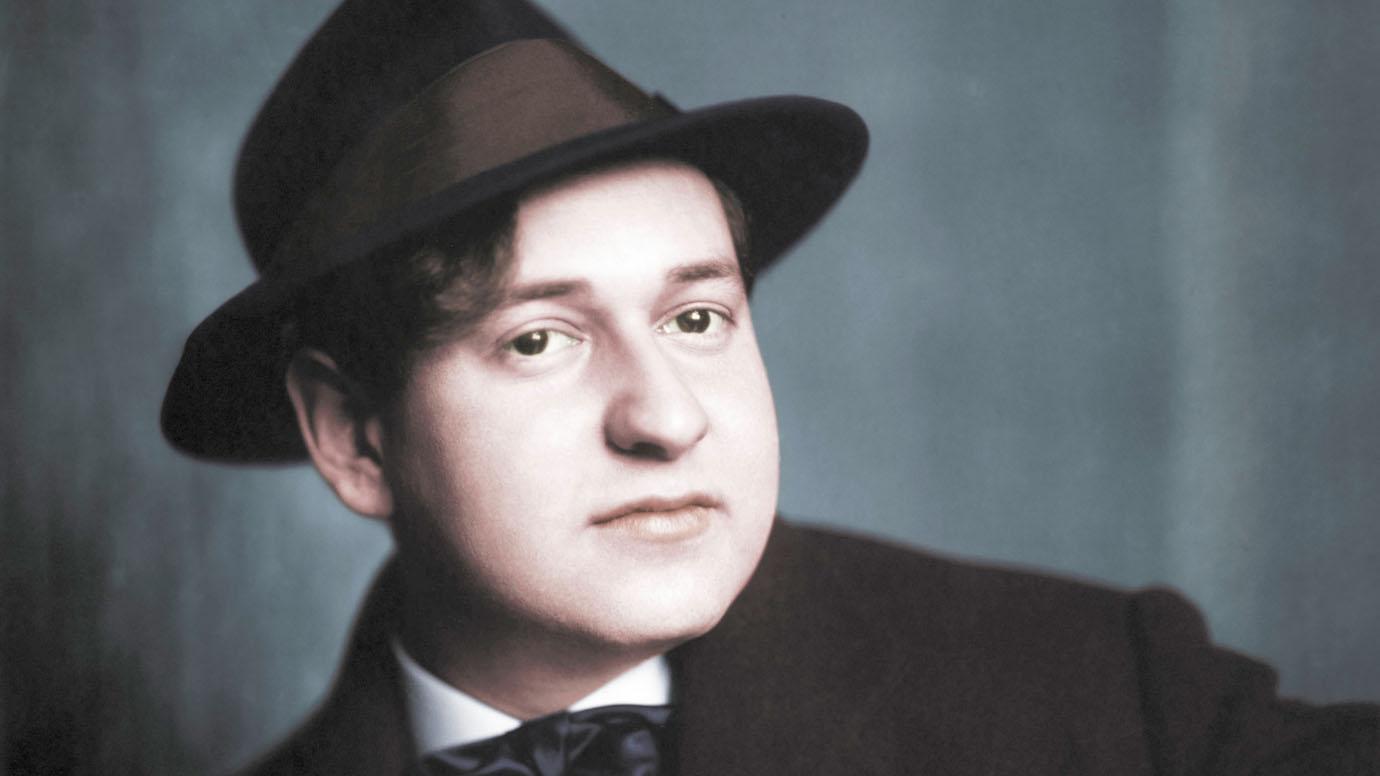
If you've visited a movie theater and delighted in the grand scores of composers like John Williams, Michael Giacchino, or Hans Zimmer, you owe a debt of gratitude to a composer who came before -- Erich Wolfgang Korngold.
Born in 1897 in what is now the Czech Republic, Korngold was a child prodigy, composing the ballet Der Schneemann (The Snowman) at age 11, causing quite a sensation at its debut performance in Vienna. As a young man, he composed multiple operas including Die tote Stadt (The Dead City), which became one of the greatest hits of the 1920s, receiving several performances at the Metropolitan Opera. The work was eventually banned by the Nazi regime because of Korngold's Jewish ancestry and after WWII, it fell into obscurity.
But it was Korngold's background in opera which revolutionized cinematic music. In the early 1930s, Korngold traveled to the United States to work on the film A Midsummer Night's Dream and began traveling between the US and Europe until the spread of Nazi influence forced him to settle in California in 1938. Korngold brought to film scoring the technique of mimicking the rhythms of spoken word and the frequent use of leitmotifs -- musical themes for characters, items, or concepts -- borrowed from Wagner's epic operas and heard today in movies like Star Wars. In 1938 Korngold received an Oscar for the score of The Adventures of Robin Hood.
Outside of the film industry, Korngold wrote plenty of non-programmatic music, including his Violin Concerto, which has become one of the mainstays of the repertoire and received an enthusiastic response after its premiere in St. Louis. The critics in New York were harsher, with The New York Times critic panning it as a "Hollywood Concerto," reflecting the prejudice against Korngold's lush and romantic musical style and the way in which the music establishment looked down upon film composers.
The work was dedicated to Alma Mahler, the widow of Korngold's childhood mentor, Gustav Mahler, and received its premiere in February of 1947 by Jascha Heifetz and the St. Louis Symphony conducted by Vladimir Golschmann. All three movements of this virtuosic and demanding concerto draw on themes from films produced between 1937 and 1939.
Experience Erich Korngold's Violin Concerto performed by Bella Hristova with conductor Kwamé Ryan on January 13 &14 at the Belk Theater.
Read more
Of Rage and Remembrance: John Corigliano’s powerful response to the AIDS epidemic
February 1, 2022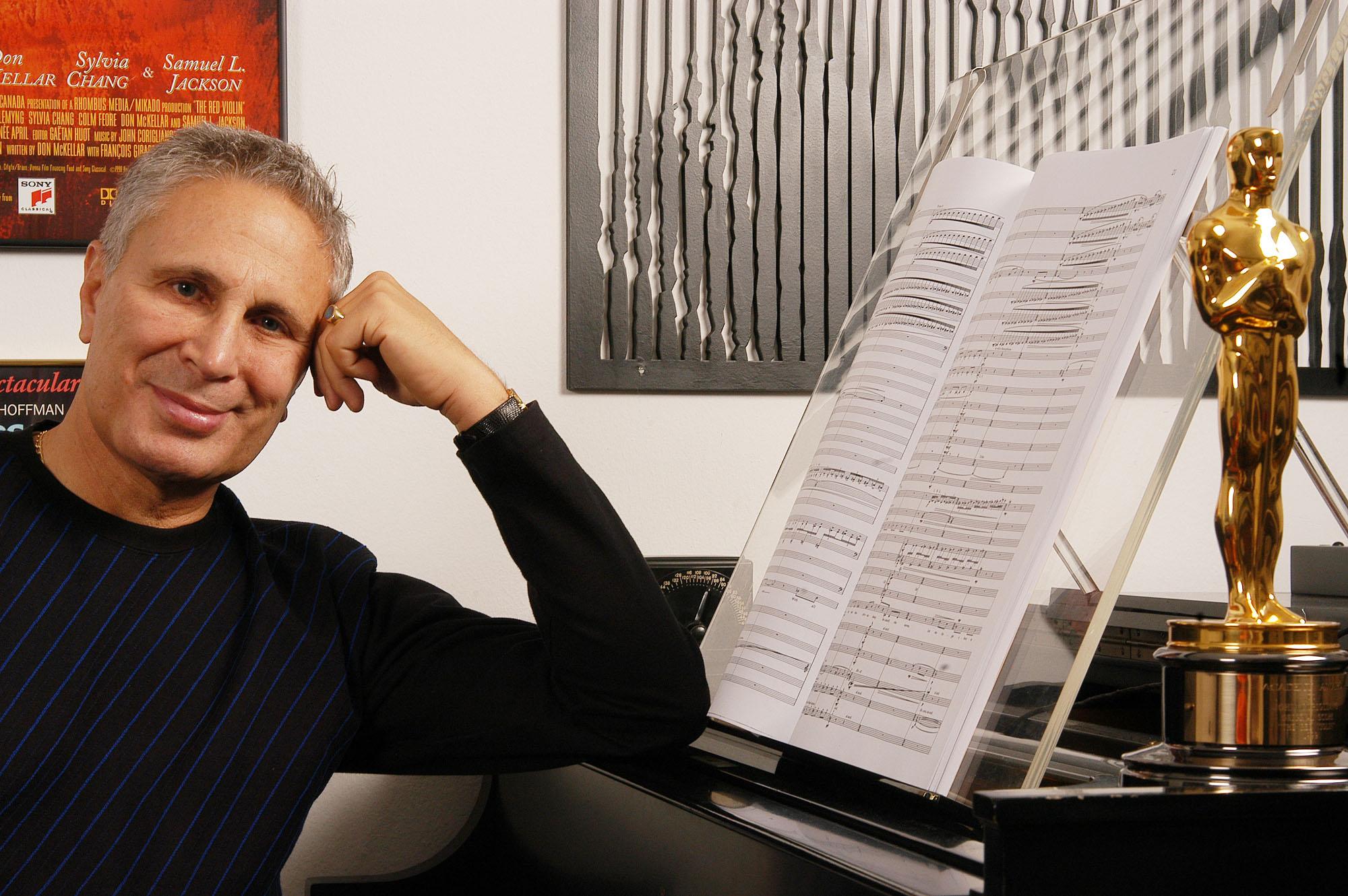
According to the composer himself, John Corigliano was reluctant to try his hand at a modern symphony, but he felt it was the appropriate format for this particular work. "My Symphony No. 1 was about world-scale tragedy and, I felt, needed a comparably epic form," he wrote. The AIDS epidemic had affected him deeply, and inspiration came, in part, from the NAMES Project AIDS Memorial Quilt.
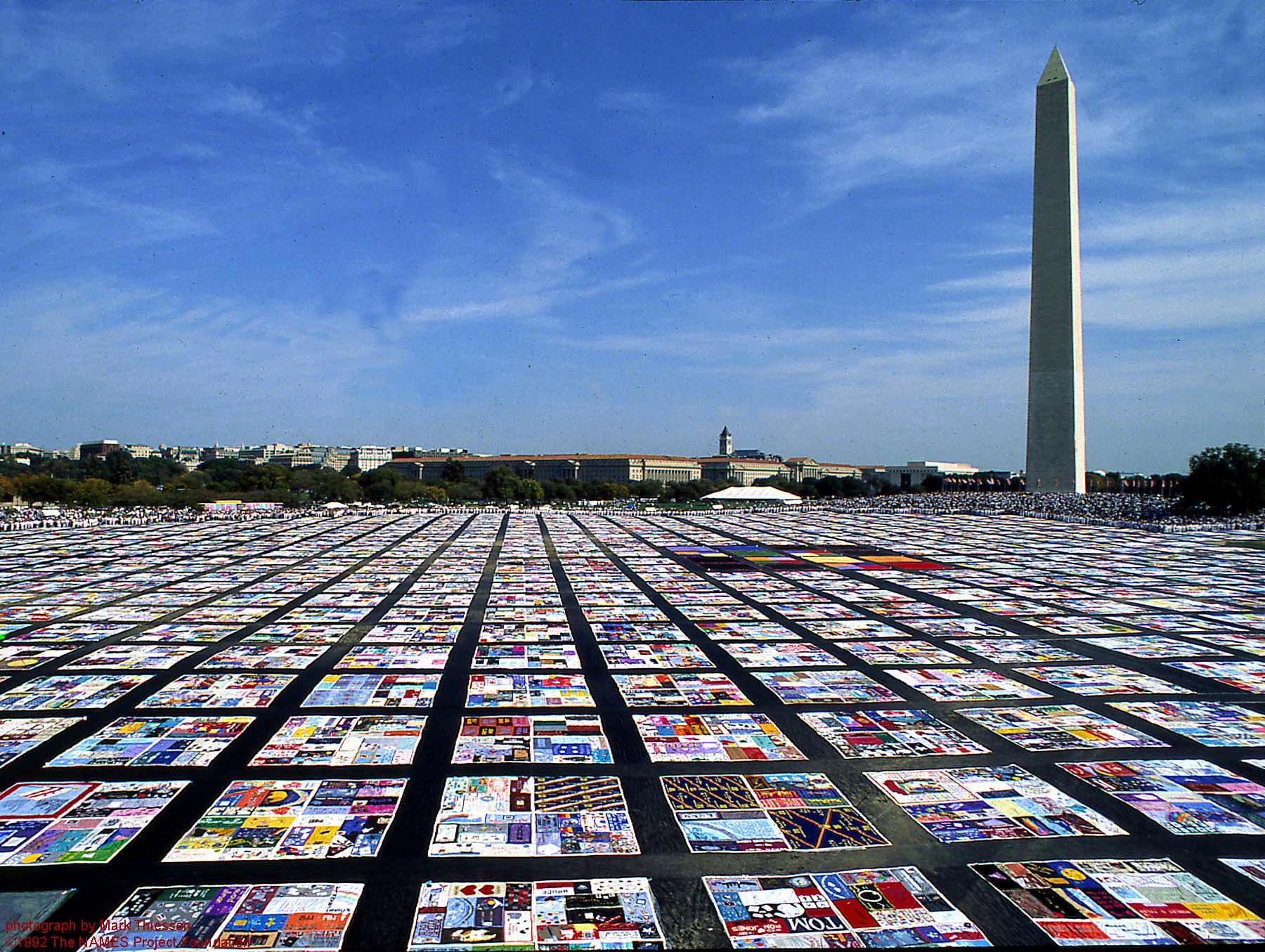
"I was extremely moved when I first saw 'The Quilt,' an ambitious interweaving of several thousand fabric panels, each memorializing a person who had died of AIDS, and, most importantly, each designed and constructed by his or her loved ones. This made me want to memorialize in music those I had lost, and reflect on those I was losing."
The first movement of the work, Apologue: Of Rage and Remembrance, includes an offstage piano playing Isaac Albeniz' Tango, a favorite work of Corigliano's pianist friend, who is memorialized in this movement.
The second movement, Tarantella, was written in memory of a music executive and amateur pianist. With shocking percussion and brass interrupting an Italian folk dance, followed by a wistful clarinet, Corigliano has written that this movement represents his friend's descent into AIDS-related dementia.
Chaconne: Giulio's Song was written to remember Corigliano's college friend and amateur cellist, Giulio. A solo cello represents his friend while a second cello joins in, a remembrance of Giulio's cello teacher.
The final movement, Epilogue, is played against a repeated pattern consisting of waves of brass chords. Against this, each of Corigliano's friends and their music are recalled. The work ends as a solo cello holds the same perpetual A, finally fading away.
In the composer's own words:
Read more
Cultural Ambassador: Dr. Frederick C. Tillis
January 31, 2022
A trailblazer in the American classical music tradition, Dr. Frederick C. Tillis bridged jazz and European classical music as a renowned composer, jazz saxophonist, and educator. Born in Galveston, TX in 1930, Dr. Tillis began composing when he was 20 years old. From 1950, he composed over 125 works, including symphonies, quartets, solo songs, and choral pieces, that reflected his ethnic and cultural background as well as many cultures and traditions experienced in his travels around the world.
Establishing his passion early in life, the young musician picked up the trumpet to perform in his elementary school's drum and bugle corps. At the age of 12, "Baby Tillis" was performing with jazz bands, traveling extensively with the Tillis-Holmes Jazz Duo and the Tradewinds Jazz Ensemble to Mexico, Europe, Asia, Australia, New Zealand, and Fiji. He earned a college scholarship to Wiley College, whereupon graduation, the new alumnus accepted the role of the college's band director. While pursuing a Ph.D in music studies, he volunteered for the Air Force and became director of the 356th Air Force Band, but returned to earn his doctorate degree from the University of Iowa. Dr. Tillis taught at several universities, eventually at the University of Massachusetts at Amherst, where he became Director of the University Fine Arts Center and was the chief innovator
of the Jazz and Afro-American Music Studies Program.
Dr. Tillis is known for experimenting with the beauty of classical and the beat of jazz. Influenced by Schoenberg, Bach, Prokofiev, Mussorgsky, African-American composers, and world music, Dr. Tillis blended African-American music with European classical music and incorporated both Asian and Western traditions. Known for his intricate melodies and rich harmonic textures, some of his works include A Symphony of Songs, a choral/orchestral work based on poems by Wallace Stevens and commissioned by The Hartford Chorale, Inc.; A Festival Journey and Ring Shout Concerto for percussion, written for Max Roach; and Concerto for Piano and symphony orchestra written for Billy Taylor.
His work continued as an educator and cultural ambassador throughout his life, traveling to advise the establishment of a jazz studies program at the University of Fort Hare in South Africa, spending a three-week residency to help establish a jazz major at the Chulalongkorn University in Bangkok, Thailand on behalf of the United States Information Agency, and sharing his talent as a Master Artist in Residence at the Akiyoshidai International Art Village in Yamaguchi, Japan. Having spent a long life making musical connections around the world, Dr. Tillis passed away at the age of 90 in May 2020.
At a UMass Amherst conference in 2010, Dr. Tillis reflected, "...Every place I've gone I've heard African - but not African only - American classical music....[We] had a thing for calling it America's classical music, and I think that's very valuable. Because if you look at music all over the world - and there's a European tradition, a very fine tradition; I write in it and so forth -- but then there's another tradition that has a rhythm; it has a melody; it has something altogether different that's all over the world, everywhere you go; you would hear African American music: China, India, it doesn't matter. So I think we're very much on target in calling it American classical music, European classical music....I think that those are the kinds of important things that should make us proud and also enlighten us; one of the things about African American music, jazz, is that it is a very spiritual kind of music." Read more
In Person with Jessica Cottis
January 18, 2022
This month, Australian-born conductor Jessica Cottis makes her debut with the Charlotte Symphony to conduct a fascinating program including the Charlotte Symphony premiere of Kurt Weill's witty and theatrical The Seven Deadly Sins. We sat down with Ms. Cottis to discuss her path to the podium and what the audience can expect from her debut performance.
What led you to pursue conducting as your career?
For me, growing up in a very musical family, music was very much a means of expression and communication, even more so than speaking. I did my undergraduate as an organist and musicologist and had a really excellent career, but I got carpal tunnel syndrome in my twenties and I never knew when my hands would be reliable. I needed to rethink how I was as a musician and it was incredibly hard, particularly so because I had started music at such a young age. Conducting was very intoxicating - to think there was this opportunity to get so much depth and nuance from a symphony orchestra. I was like a match struck in the dark - it was sheer exhilaration that we as humans can express thoughts, emotions, and stories through this incredible art form and this incredible instrument, which is the orchestra itself.
What is it like stepping in front of a new orchestra for the first time?
I love meeting new orchestras because they all have such a personality, and I never know what it's going to be until we start making music, really! I took a look at many of the recent programs that the Charlotte Symphony has put on and they seem forward-thinking, friendly, and really passionate about music. For me, one of the greatest things about being a human is being able to create and participate in art, and I really feel that passion from everything I've seen. So I'm very much looking forward to being in Charlotte and meeting the orchestra.

You've created such an interesting program, from Stravinsky to Kurt Weill and Jessie Montgomery. What goes into programming a concert like this?
One of my greatest interests in music is programming, and in the way that we can find connections between music that might be so disparate - 300 years between pieces or completely different focuses from the composers, but that one piece might lead somehow, imaginatively, into another and maybe even open our ears in new ways so that we can hear old music afresh.
In this program, as with any program, I tend to start with a seed of an idea, and then from that seed I look to see how it grows, and I never know from the beginning how it will grow! The initial idea of this program was that I really wanted to do The Seven Deadly Sins with the Charlotte Symphony. Somehow that felt like a perfect matching of minds and musical intellect. It's such a fantastic piece, so incredibly theatrical, and it has such a brilliant way of depicting humor, ideas, and nuances through Kurt Weill's musical style. He had only just fled Berlin for Paris in 1933 and this is his imaginary fantastical version of the United States; of this young woman sent out into the world to make money by her greedy exploitative family. It's almost 100 years old but it's still so fresh. The work includes so many different musical styles: foxtrots, a church choral, barbershop quartet, tangoes, and lots of wit. And that wit is really what led me to the Stravinsky.
That would be the Stravinsky Circus Polka?
Yes, the piece was written for Ringling Bros. and Barnum & Bailey Circus, for elephants to dance to - which is incredibly preposterous! There's a certain theatricality to the circus that works really well with the Kurt Weill piece.

Which leaves us with Ravel's Piano Concerto and Jessie Montgomery's Strum.
The Ravel has a strong jazz influence, which linked so well to both the Weill and the Stravinsky. And I'm very much looking forward to working with Stewart Goodyear, I think this will be a really great meeting of musical minds. I've known Jessie Montgomery's pieces for a while and I've conducted Strum in numerous places - I just love it! It's just what it sounds like, the string players spend quite a lot of time strumming their instruments rather like a banjo. I thought it linked in well to the dichotomy of the classical being influenced by more popular styles of a particular time.
I've heard that in your limited spare time, you're learning to fly helicopters!
Yes! I've had to stop due to the pandemic, but I look forward to getting back into that whenever it happens. There's something really special about flying. It's exhilarating and humbling, and sort of life-affirming being able to lift oneself above where we normally are and look down and have a birds-eye view. As musicians, we spend so much time on forensic detail - and we must, it's so important - but keeping an eye on the bigger visual architecture is so freeing, really.
Read more
| Older Posts » |
Latest Posts
- MERGE: Symphonic x Electronic
- Heart of the Home Tour Returns
- Composer Spotlight: Nia Imani Franklin
- More Famous Than Mozart: Joseph Bologne, Chevalier de Saint-Georges
- Art in Motion: Rosalia Torres-Weiner Chosen to Design CSO Roadshow
- Announcing Kwamé Ryan as the Charlotte Symphony’s Next Music Director
- Photos: Charlotte Symphony Annual Gala and Concert
- Five Must-See Concerts of the 2023-24 Season
- 5 Pro Tips for the Best Summer Pops Experience
- A Preschool Performance Three Years in the Making


